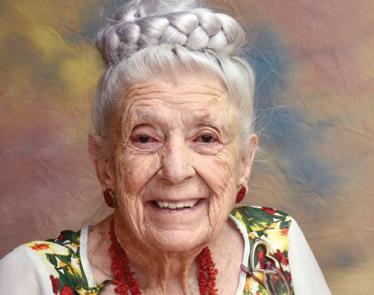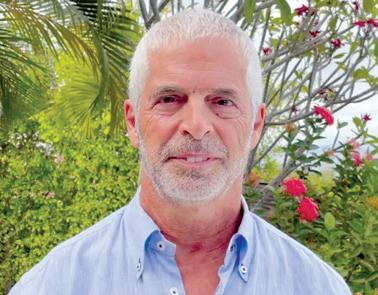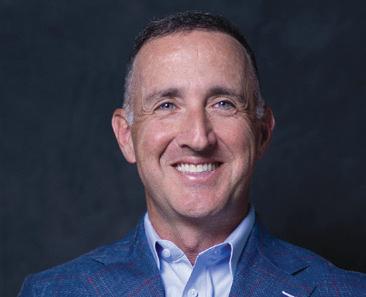




The Rise of Customized Eating Why Everybody’s Diet Should Be Different
Holistic Approach to Exercise Recovery What To Eat and Drink for Muscle Repair
Switching to Naturally Fresh Dog Foods The Key to Gut Microbiome Health Guide to Healthy Cooking Oils Minimally Processed and Anti-Inflammatory

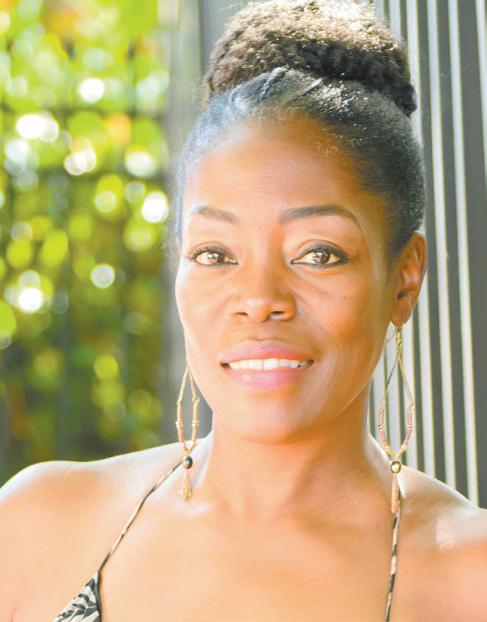
As we step into March, we find ourselves in that in-between season—a time of transition, renewal, and the perfect opportunity to reset our approach to health. This month, I want to talk about something truly transformative: personalized nutrition and its incredible impact on healing the body and managing weight in a way that feels natural, sustainable and empowering.
We often hear about one-size-fits-all diets and quick fixes, but the truth is, no single approach works for everyone. Our bodies are unique, shaped by genetics, lifestyle and individual needs. What fuels one person may leave another feeling sluggish. What helps one shed pounds might not work for someone else. This is where personalized nutrition comes in—it shifts the focus from generic advice to tailored strategies that support your body’s healing process, metabolism and overall well-being.
I’ve seen firsthand how small, intentional changes in what we eat can make all the difference. When we truly listen to our bodies—paying attention to how foods make us feel, how they impact our energy, digestion, and even our emotions—we unlock the ability to heal in ways we never imagined. Instead of battling cravings, feeling restricted or struggling with weight fluctuations, we step into a place of balance where food becomes our ally, not our enemy.
This issue is all about discovering those tools—learning how to nourish ourselves with the right foods, movement and habits that work for us, not against us. From the power of whole, nutrient-dense foods to the latest breakthroughs in personalized nutrition testing, we’re exploring ways to create a sustainable, intuitive approach to eating that fosters both healing and longevity.
So as we move closer to spring, I encourage you to embrace this time of renewal and tap into what your body truly needs. Healing and balance aren’t found in restriction or fad diets— they are found in understanding, self-care, and aligning with the foods and habits that make you feel your best.
Here's to a season of nourishment, empowerment and thriving in your healthiest body!
With gratitude,
Regina

Publisher Regina Hall Rudolph
Editors Tammie Jones
Randy Kambic Martin Miron
Design & Production Patrick Floresca
CONTACT US
12220 Chattanooga Plaza, Suite 122 Midlothian, VA 23112 804-495-0325
Regina@NARichmond.com NARichmond.com

Natural Awakenings Richmond Facebook is a registered trademark of Facebook, Inc.
SUBSCRIPTIONS
Subscriptions are available by sending $12 (for 6 issues) to the above address.
CEO Kimberly B. Whittle
COO Michael Bevilacqua
CMO Vee Banionis
Sr. VP Operations Brian Stenzler, DC
National Editor Sandra Yeyati
Editor Brooke Goode
Copy Editor Melanie Rankin
Print Production Specialist Kevin Rankin
Design Director Agnes Mazeikaite
Production Flip180
Customer Service Dani Bucad
CONTACT US
Natural Awakenings Publishing Corporation 350 Main Street, Suite 9B Bedminster, NJ 07921 Ph: 239-206-2000
NaturalAwakenings@KnoWEwell.com
Cover image by khorzhevska/DepositPhotos
© 2025 by Natural Awakenings. All rights reserved. Although some parts of this publication may be reproduced and reprinted, we require that prior permission be obtained in writing. Natural Awakenings is a free publication distributed locally and is supported by our advertisers. Please call to find a location near you or if you would like copies placed at your business. We do not necessarily endorse the views expressed in the articles and advertisements, nor are we responsible for the products and services advertised. Check with a healthcare professional regarding the appropriate use of any treatment.

Natural Awakenings is printed on partially recycled and fully recyclable newsprint with black soy ink.
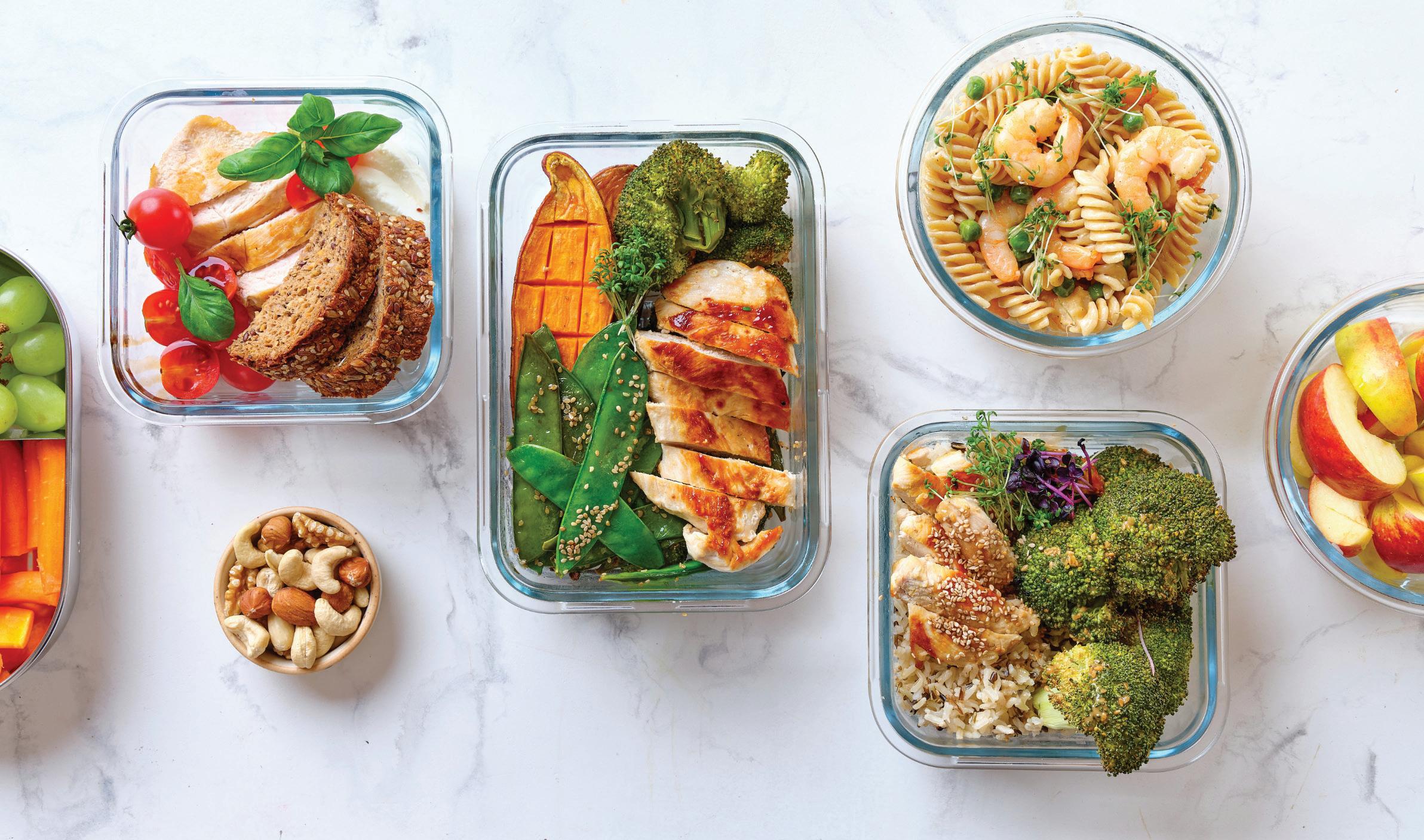

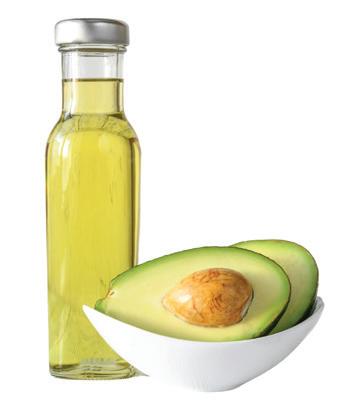


Award-winning author, food editor and restaurant critic Ruth Reichl will appear at 7 p.m., March 27, at the Henrico Sports and Events Center to discuss her latest work, The Paris Novel. The event is sponsored by the Friends of Henrico County Public Library, Henrico County Public Library and Henrico County Public Schools.
Library Director Barbara Weedman says, “Our region is known for its culinary scene, and we’re excited to invite and welcome the community to this event.” All Henrico Reads encourages members of the community to all read the same book or a book along the same topic, then discuss it together and hear the author speak at the public event.
Reichl is the New York Times bestselling author of five memoirs, novels and the cookbook My Kitchen Year. She was editor-in-chief of Gourmet magazine, a restaurant critic for The New York Times and a food editor and restaurant critic for the Los Angeles Times. Reichl has been honored with six James Beard Awards, and in 2024 received the James Beard Lifetime Achievement Award.
Admission is free. Location: Henrico Sports and Events Center at 1 All Star Blvd, Glen Allen, VA. For more information, visit HenricoLibrary.org.
Sarah Blunkosky, MA, C-IAYT, ERYT 200, PYT and CYT, will present a restorative two-hour yoga and somatic experience for caregivers from 3 to 5 p.m., March 22, at the Innerwork Center. She says, “When was the last time you prioritized your own well-being? If the demands of caregiving leave you feeling drained, this is designed just for you.”

In a gentle, welcoming space, participants will engage in mindful movement, breathwork and somatic practices that help release stress and restore balance. Through simple, accessible movements free from judgment or the need for perfection, they can explore how shifting the body can lighten the emotional weight that caregiving often brings.
This class offers a supportive community, a chance to connect with others that understand the journey and an opportunity to leave feeling refreshed, grounded and renewed. While specially designed for caregivers, all are welcome.
Preregistration required at Tinyurl.com/SortingClutter. Location: 213 Roseneath Rd., Richmond. For more information, visit InnerworkCenter.org.

The Richmond Ballet will perform at the Virginia Museum of Fine Arts (VMFA) beginning March 20 with their Moving Art performances that feature both contemporary and classical ballet in the intimate setting of the Leslie Cheek Theater, featuring three distinct ballets on the program. The theater recently underwent a $5.3 million renovation.
In addition to being the venue for the Moving Art performance series, VMFA is the official partner for Richmond Ballet’s Minds In Motion community engagement program this school year. Through this important initiative, Richmond Ballet creates a bridge for students, starting in fourth grade, to gain a greater understanding of themselves through dance, classroom curriculum, community partnerships and professional performances.
Location: Virginia Museum of Fine Arts, 200 N. Arthur Ashe Blvd. Richmond. For more information, visit RichmondBallet.com.

Gardening expert Will Nelson will conduct a hands-on workshop designed to teach the art of mushroom cultivation from 1 to 3 p.m., March 8, at the Lewis Ginter Botanical Garden. He says, “Mushrooms are some of the most fascinating organisms on the planet, with over 2,189 edible varieties found worldwide. If you’ve ever wanted to cultivate your own gourmet or medicinal mushrooms, now’s your chance!”
Perfect for both beginners and experienced gardeners, this class will guide participants through the process of growing mushrooms indoors and outdoors. Attendees will get to explore essential materials such as mycelium and substrate while learning expert techniques for successful cultivation. Each participant will take home a grow kit of either Lion’s Mane or Reishi mushrooms to kickstart their mushroom-growing journey.
Nelson founded Will To Plant, a venture that includes a backyard plant nursery and tabling at local markets. His expertise has led him to conduct workshops on plants and mushroom cultivation all across Virginia.
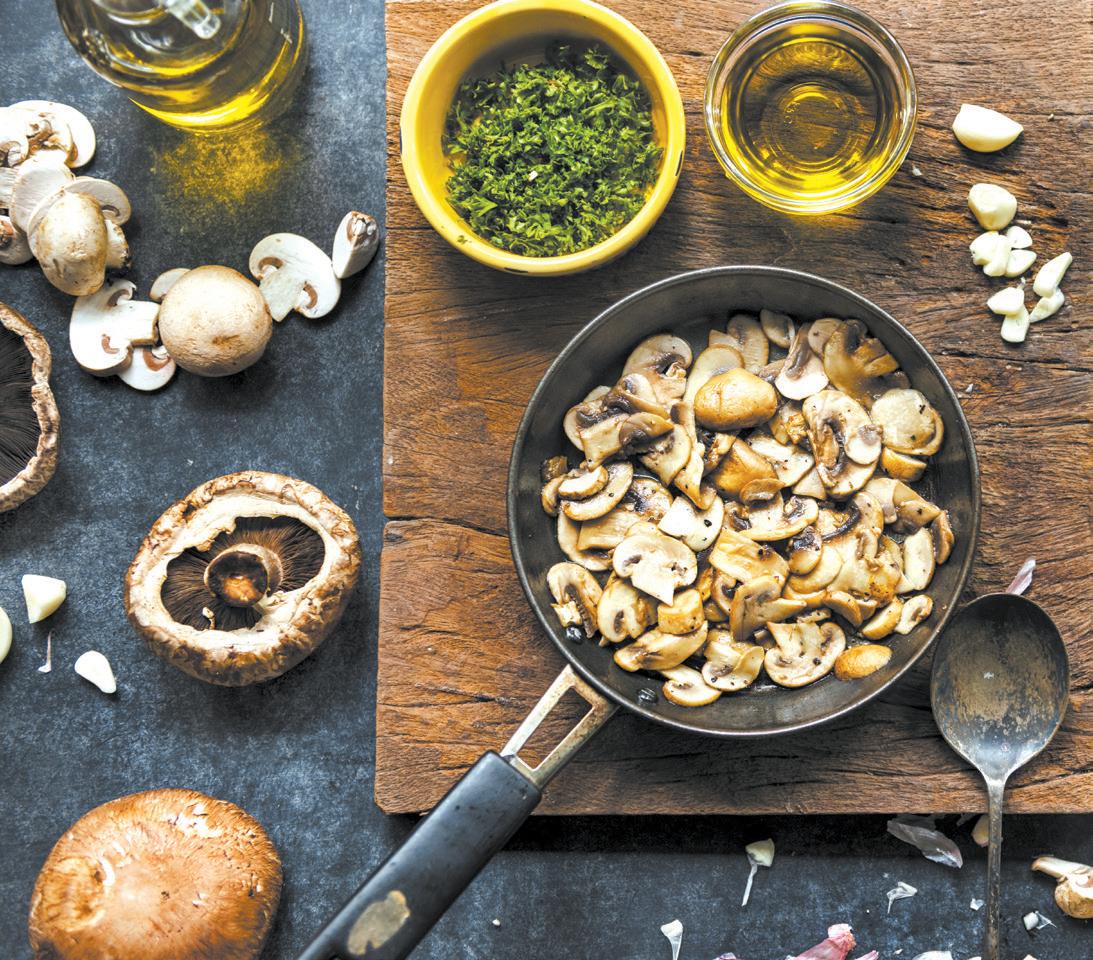
Cost is $50 for members, $60 for non-members. Location: 1800 Lakeside Ave., Richmond. Pre-registration is required at LewisGinter.org/ event/mushroom-cultivation.

by Kayla Rudolph
Herbal teas have been used for centuries to support health and vitality. Unlike black or green teas, these blends come from flowers, leaves, seeds, roots and fruits. This incredible variety means there is a tea for every goal. Imagine starting the day with a warm, fragrant cup of herbal tea. As the steam rises, so does our energy and focus, thanks to the natural vitamins and minerals infused into every sip. Herbal teas are more than just a drink; they are a journey into wellness.
Every sip includes a gentle digestive aid from its rich potassium content that supports heart health and hydration. Hibiscus tea is bursting with vitamin C to keep the immune system in top shape and skin glowing. Dandelion tea is rich in potassium, helping the body detox and support the liver.
Herbal teas are also packed with antioxidants that protect the body from harmful free radicals. Rooibos tea shields the heart with polyphenols. Valerian root, a natural ally for relaxation, is known for its calming properties, making it an excellent choice for unwinding after a long day or supporting restful sleep. Energize the morning with peppermint tea or unwind in the evening with soothing lavender. Go for high-quality, organic blends to enjoy the full benefits without artificial additives.
Herbal teas are not just good for the body, they are a gift for the soul. Brewing tea can be a moment of mindfulness in a busy day. The ritual of steeping, sipping and savoring is a chance to pause, breathe and reconnect with ourselves.
Kayla Rudolph is the co-owner of Magnolia Wellness Teas. For more information, visit Wellness-Teas.com.


The National Institutes of Health is conducting a study to help determine why so many people can’t stop eating ultra-processed foods. The study includes 36 participants living in a controlled setting for a month. They can eat as much as they like up to 6,000 calories per day, with a different type of diet each week.
One diet includes minimally processed foods such as oatmeal, strawberries and walnuts. Another diet involves ultra-processed, energy-dense (high-calorie) meals with most calories coming from hard-to-resist foods such as honey-roasted peanuts. A third diet is also ultra-processed and energy dense, but with fewer calories from the hyper-palatable items. The fourth diet consists of packaged foods that are neither energy-dense nor hard to resist, such as scrambled eggs from a liquid egg product, flavored yogurt and oatmeal with fiber powder and heavy cream.
Preliminary data from 18 of the participants found that while each diet made them feel full and satisfied, their consumption of calories differed, depending upon how hard-to-resist and energy-dense the food choices were. When subjects were given an energy-dense diet with very palatable foods like honey-roasted peanuts, they consumed about 1,000 more calories than with the other diets. When they were offered an ultra-processed diet that was neither energy-dense nor hyper-palatable, the calorie count increased by only 170.
The findings suggest that eating packaged foods does not automatically result in overeating or weight gain. The key may be avoiding hyper-palatable foods and offsetting energy-dense foods with unprocessed foods like salads.
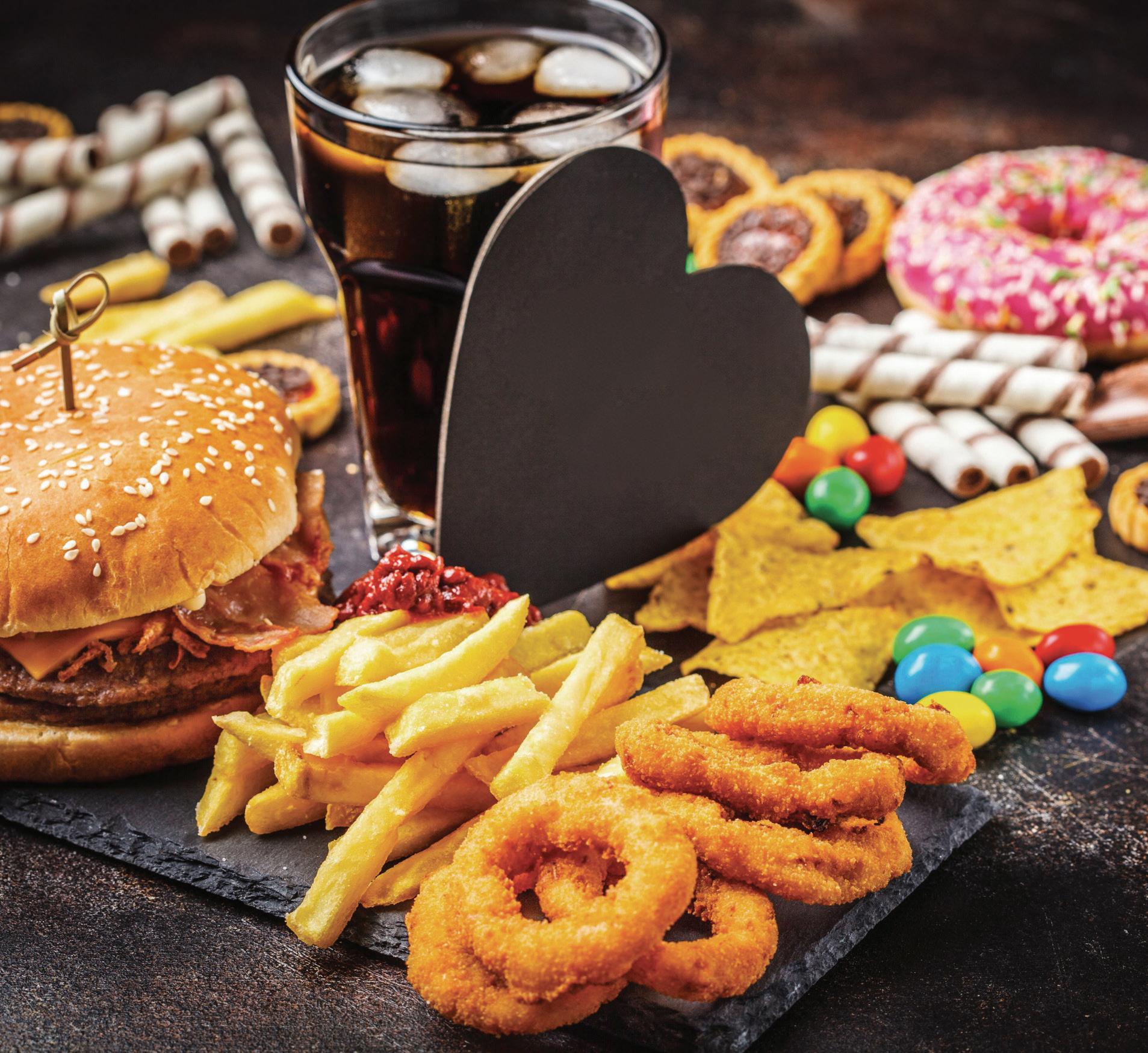
According to a recent study by the National Center for Complementary and Integrative Health and the National Institute of Mental Health published in Nature Mental Health, three factors— loneliness, a prior psychiatric diagnosis and stress-related social distancing—were all predictors for experiencing psychological distress during the COVID-19 pandemic.
The internet-based study included more than 3,600 participants that reported their mental and physical health and COVID-related circumstances every two weeks for six months during the first year of the pandemic. Those with a previous psychiatric diagnosis experienced greater psychological distress than those without such a history, supporting public health initiatives to address loneliness and social isolation to improve mental health.

The U.S. Food and Drug Administration has approved a new nonopioid pain reliever called suzetrigine to treat moderate to severe short-term pain in adults. Marketed as Journavx by Vertex Pharmaceuticals, the drug works by blocking a specific channel that transmits pain signals to the brain. After the tragedy of tens of thousands of opioid-related deaths, this non-addictive option for use after surgery or for acute pain management is a welcome alternative. Journavx was evaluated in two randomized, double-blind trials, and was found to demonstrate a statistically significant superior reduction in pain compared to a placebo.

The use of wild and cultivated herbs for medicinal and food purposes predates recorded history. It is easy to grow herbs like basil, parsley and mint at home, making them conveniently available at peak freshness and flavor with a higher nutritional content than their dried counterparts. Home gardeners can control the variety and quality of their herbs, reduce or completely eliminate the use of pesticides, and eliminate the transportation emissions and need for plastic packaging.
To start a windowsill herb garden, follow these easy steps:
• Choose a window. Pick a window that gets at least six hours of direct sunlight a day; one that faces south or southwest is best. Alternatively, use a grow light for 14 to 16 hours a day.

• Select a container. Use a container with drainage holes and a saucer to catch excess water. Place a layer of potting mix in the bottom of the container.

• Plant seeds or young plants. If using seeds, plant at the depth recommended on the seed packet. Keep the seeds moist while they germinate. Once sprouts breach the soil, thin out seedlings to avoid overcrowding. For young plants, gently remove them from their original pot, loosen the roots, plant them in the container and water immediately.
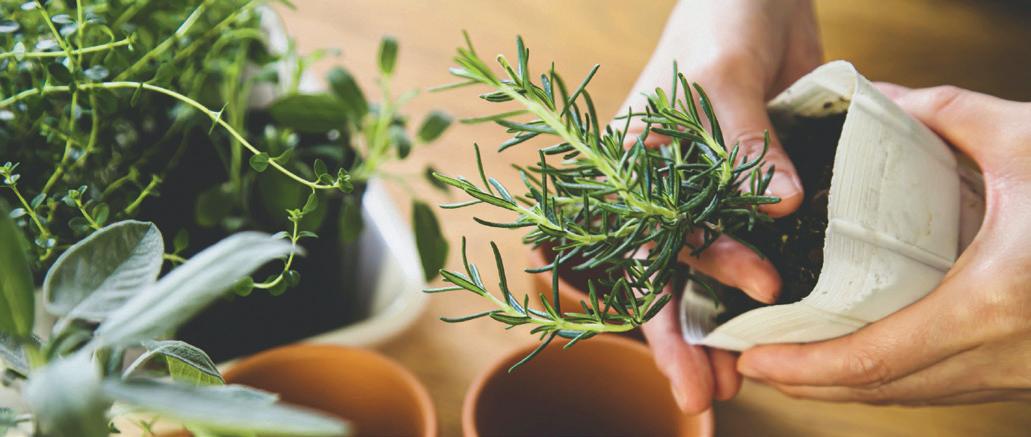
• Water and feed. Follow the recommended watering schedule for each herb. Water the potting soil, not the leaves. Drain the saucer when it fills up with excess water. Feed herbs weekly with organic plant food.

• Harvest and maintain. Harvest herbs when they are four to six inches tall. Regular harvesting encourages new growth. Cut stems from the top or prune the sides of the plant with sharp pruners. Avoid trimming more than a third of the plant’s foliage.
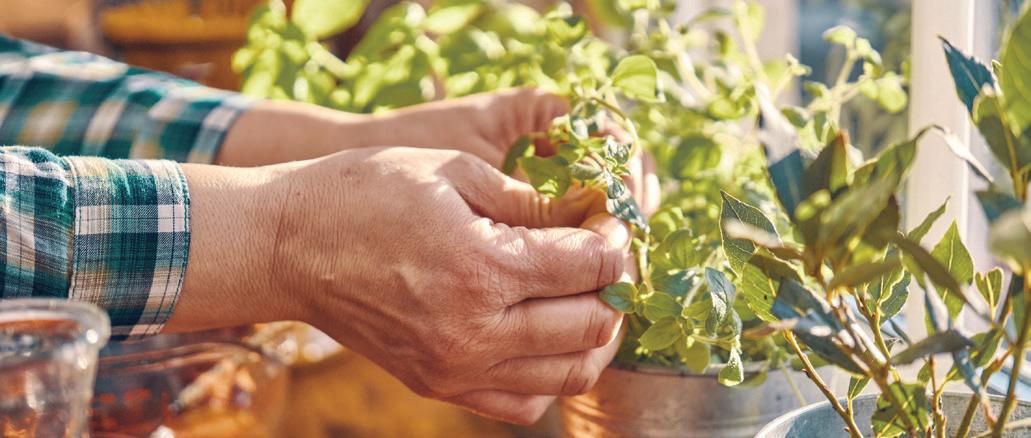
by Carrie Jackson
Targeted nutrition is emerging as one of the year’s biggest areas of growth in the field of health care. Data researchers at Statista estimate that the global personalized nutrition market will exceed $16 billion in 2025. From elite athletes to busy professionals, consumers are looking for individualized recommendations that take their lifestyles and unique physiological needs into consideration. Smart devices, artificial intelligence (AI) and comprehensive testing are helping people identify their nutritional requirements and make informed dietary choices. Greater attention is also being placed on the gut microbiome and customized supplementation. The one-size-fitsall approach to eating is dwindling.
Kerry Health and Nutrition Institute, a global food research organization, recently listed targeted nutrition in their top five trends for 2025, suggesting a greater emphasis on individual “need states” that might focus on the health status of the heart, joints, bones or gut, or on personal goals associated with sports nutrition, while nutritionists are using finely tuned supplements that cater to individual requirements. Joint and bone health benefit from anti-inflammatory compounds and improved calcium absorption, for example, while cognitive health is supported by nootropics, medicinal substances that improve thinking, learning, memory and gut-brain axis modulation. Consumers are also opting for innovative ingredients
like collagen peptides, omega-3s, amino acids, postbiotics and adaptogens to enhance their health status and optimize their fitness.
Technology is making it easier to measure how our bodies are responding and performing at any given time. “Smart watches, smart rings and armband devices can track heart rate and oxygen levels, and monitor blood pressure levels. Some healthcare providers may recommend continuous glucose monitors to track blood sugar trends and fitness devices to track physical activity,” says Sue-Ellen Anderson-Haynes, a registered dietitian nutritionist and owner of 360Girls&Women, which offers
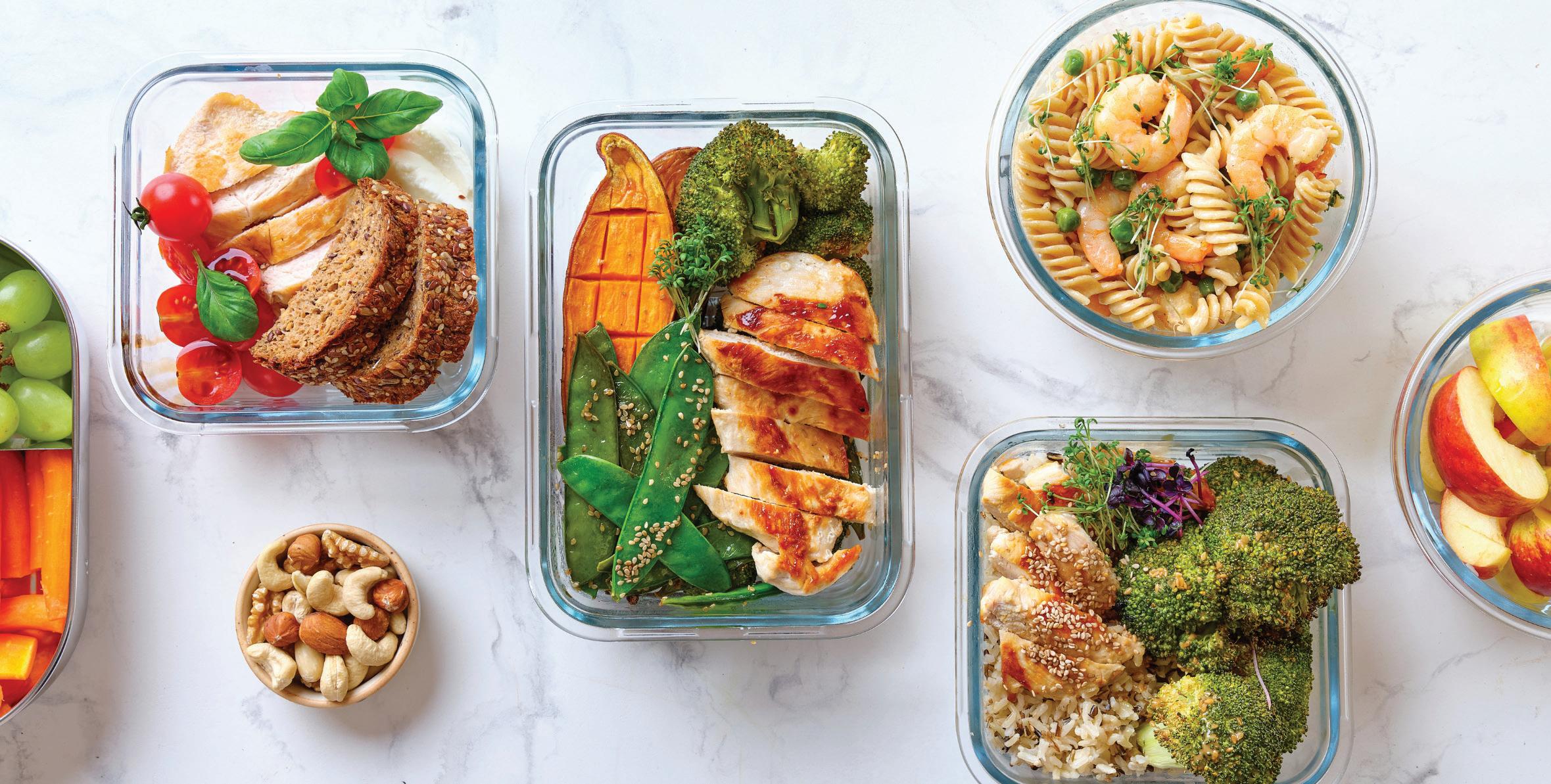
personalized nutrition plans for health improvement or maintenance.
Using AI-powered products and services, consumers have the ability to receive nutritionist-backed recommendations, monitor their progress and make adjustments based on food preferences, health goals and other variables such as age, gender and body mass index. It is a streamlined path to improving eating habits, tailoring meal plans and creating recipes that align with health objectives and personal preferences.
For even more personalization, AndersonHaynes notes, “A registered dietitian nutritionist can evaluate past medical history, nutrition, physical activity, age, biochemical and anthropometric measurements, laboratory data, and socioeconomic and education levels. In addition, they might perform functional medical testing that includes specialized hormone testing, a review of food intolerances and microbiome testing. About 70 to 80 percent of our immune cells are found within the gut. Studies show that the more diverse the healthy microbes are in the gut, the lower the risk of inflammation and diseases like diabetes, heart disease, dementia and certain cancers. In addition, when our gut is functioning well, it allows for proper metabolism processes to occur, like digestion and the absorption of nutrients from the foods we eat.”
While research on the gut-brain axis is still ongoing, it is becoming clearer that the nerves that send signals between the gut and the brain may be influenced by the foods we eat. Anderson-Haynes suggests, “Healthful nutrients for the microbiome may include prebiotic fiber, probiotics, omega-3s, anthocyanins [plants that are blue, violet or red] and resveratrol [a defensive substance found in the skin of plants, fruits and seeds]. Studies show that the health components in these foods positively affect mood, anxiety, depression, the immune system and the nervous system.”

Other supplementation may be necessary or advised. “While there are a variety of supplements on the market, a personalized assessment and evaluation reveal what each person may need. For example, if there is a deficiency that food alone may not be able to increase, then a vitamin or mineral supplement will be needed,” explains AndersonHaynes. “Symptoms of low levels of vitamin D may include fatigue, depression, muscle weakness and hair loss, and if vitamin D levels are deficient, then a supplement will be needed. If there are reports and symptoms of anxiety and excessive stress, supplements generally recommended to support the nervous system may be ashwagandha, magnesium, vitamin C and others. There are also evidence-based herbal remedies utilized by functional medicine practitioners to support hormone imbalances.”
Anderson-Haynes encourages clients to listen to their own bodies and to prioritize nourishment at every meal. “Food is amazing. It comes in all shapes, sizes, textures and tastes. It serves as the backdrop for social engagements and helps express culture. When done right, it’s absolutely delicious. It also serves as an element of strengthening and healing to the body. No matter your eating style, if you're trying to eat more plant-based, with less to no animal foods, you're in the right place,” she says.
According to Monique Ryan, an Illinoisbased sports dietitian and author of Sports Nutrition for Endurance Athletes, because 70 percent of the immune system is in the gastrointestinal tract, personalized nutrition begins by getting the microbiome functioning properly. “The gut is the first line of barrier to food. If it’s been damaged or hurt, people may experience increased intestinal permeability, also known as leaky gut,” she explains.
Ryan recommends food sensitivity testing to evaluate the body’s reaction to more than 175 foods. “Once we get our test results, we can create a protocol for an oligoantigenic diet, which takes out all the antigens that cause inflammation in the body. It’s a very personalized anti-inflammatory diet and targets what people are specifically sensitive to,” she says. “Anyone can go on the internet and find a generic anti-inflammatory diet, but what causes inflammation varies from person to person.”
For Ryan, all aspects of a patient’s background and lifestyle can offer pivotal clues. “I’ll sit down with each patient and take a detailed health history, including their nutrition background. Genetics also factor into overall nutrition, so we’ll look at
family history and any hereditary diseases. I’ll analyze their most recent bloodwork and look at what they typically eat and what their activity levels are,” she attests. “The more I learn about a patient, the better I can personalize a plan based on their specific needs and not just their test results.”
Ideally, nutrients are supplied through food, but some supplements may be necessary based on the patient’s blood levels. “Vitamin D, which plays a key role in immune system health, is not readily supplied by food, so most people should be taking it in supplement form,” Ryan says. “I also generally recommend a probiotic and prebiotic to support gut health. Other supplements are highly personal and vary based on the patient’s individual needs.”
Ryan urges clients to choose whole, fiberrich foods with no added chemicals. “Simple, minimally processed foods are generally the most nutritious and efficient for the body to process. So, an almond milk that has almonds, water and maybe salt is going to be better for the body than one with multiple additives and chemical ingredients,” she explains.
Ryan also works with high-level athletes. For them, personalized nutrition helps to ensure they are performing at peak levels. “Many athletes have Garmin or Polar monitors that measure their caloric output. Combined with body composition tests, these give us an overview of their metabolic and energy needs,” she says. “From there, we still have to tailor their nutrition plan for that day’s specific training. They might burn 500 additional calories one day and 1,000 in another. It depends on the athlete’s metabolism, their particular sport and what their specific training protocol is for that day. It’s not one-size-fits-all or eating the same thing every day.”
Carrie Jackson is a Chicago-based freelance writer and frequent contributor to Natural Awakenings. Connect at CarrieJacksonWrites.com.
by Maya Whitman
From champagne wedding toasts to college spring break, celebrating life’s milestones with alcohol is deeply ingrained in our culture. The idea of pouring a drink and having a good time or unwinding with a cocktail after a hard day at work is considered the norm for many people. A 2024 study published in the Annals of Internal Medicine reported that alcohol consumption rose during the COVID-19 pandemic and continued to rise through 2022, especially in those aged 40 to 49.
Even daily moderate drinking as defined by the U.S. Centers for Disease Control and Prevention—up to two standard drinks for men and one for women—comes with a hefty price tag of increased risks for cancer, heart disease and cognitive decline. Women are more likely to develop malignancies, chronic liver disease and cardiovascular issues. According to the National Highway Traffic Safety Administration, one person is killed every 39 minutes due to drunk driving.
A sober-curious counterculture led by Gen
Z individuals born between the 1990s and 2010s is forging a fresh path and spurring a new industry of alcohol-free venues, including “dry” bars, clubs, music festivals and events. According to a 2020 study by the University of Michigan, the percentage of college students ditching alcohol increased from 20 to 28 percent from 2002 to 2018, while up to 30 percent of those not in school are opting for life without the inevitable hangovers. Alcohol abuse on campuses has dropped by half compared to 20 years ago, and taking an extended break from alcoholic drinks is on the upswing, as monthly challenges like “Dry January” and “Sober October” become more popular.
“You do not need to be an alcoholic to benefit from exploring the role alcohol plays in your life or pursuing sobriety,” says Katie Campbell, a board-certified health and wellness coach in Ipswich, Massachusetts, who is passionate about alcohol-free living. “The term ‘sober-curious’ refers to anyone who wants to explore more deeply or consciously

how their personal relationship to alcohol is affecting them in mind, body and spirit, no matter how much they drink.”
Calling it a curiosity rather than full-blown sobriety gives people the freedom to experiment with their lifestyle choices. By not setting strict rules or unrealistic goals, they are not setting themselves up for failure. “In my own life, I was sober-curious for years, especially throughout my thirties. Every time I took a break from alcohol, I felt so much more alive and deeply connected to myself,” says Didi Jordan, an alcohol-free life coach and founder of Sober Chapters, in Los Angeles, California.
After periods of sober-curious experimentation throughout her 30s, Jordan finally embraced a fully sober life by age 40. “The transformation was undeniable,” she attests. “Opportunities unfolded in ways I could never have imagined, and every area of my life leveled up.”
According to research published in BMJ Open in 2018, setting booze down for just one month lowers the risks of cardiovascular events, insulin resistance, liver disease and cancer in moderate to heavy drinkers. Experts at Allina Health, a nonprofit healthcare system in Minneapolis, assert that abstinence improves sleep quality, sexual intimacy, energy and concentration. It is a great way to save calories and money, too.
Campbell recalls that alcohol fueled a false sense of confidence and bravado that she mistook for real courage. “Drinking socially actually robbed my confidence and worsened anxiety in the days to follow,” she asserts, adding that there are myriad benefits to abandoning alcohol, including deeper interpersonal connections and meaningful engagement without forgetting conversations or regretting remarks.
The abundance of a life free from escapism also spills into other areas. “I truly believe that deep down, you know when alcohol is no longer serving you,” says Jordan. “It’s about not just the physical or mental health benefits, but also the immense personal and spiritual growth. When alcohol is no longer part of the equation, we begin to uncover what our soul is calling us to do.”
Campbell’s definition of fun has dramatically shifted to newly discovered hobbies, chasing new dreams and being there for loved ones 100 percent. She affirms, “Most of all, my son, Arthur, will never see me drunk, and I don’t have to ever regret missing a moment of watching him grow.” Initially, nixing cocktails at gatherings might feel awkward, but Campbell advises, “Stick with it, and eventually what feels uncomfortable will evolve into a superpower. I love socializing sober!”
Trialing sobriety was the best gift Jordan ever gave to herself. “I didn’t start with the pressure of committing to forever,” she says. “Instead, I gave myself the freedom to explore.”
Maya Whitman is a regular contributor to Natural Awakenings.

by Sue Markgraf
Drought conditions due to hot, dry weather reached record levels in fall 2024, affecting every state but Alaska and Kentucky, according to the National Drought Mitigation Center at the University of Nebraska. With the gardening and outdoor living season only weeks away for most of the country, it makes sense that mitigating drought is top-of-mind for many. Solutions may be as close as the backyard.
Incorporating practices that conserve and protect water, such as adding drought-tolerant plants, is more than a trend in suburban, rural and even urban landscapes. “Each summer brings hotter temperatures than the previous year. It also brings more erratic weather patterns,” says Ashley Buzan, a plant expert with Woldhuis Farms Sunrise Greenhouse, in Grant Park, Illinois. “It makes sense for gardeners to consider utilizing drought-tolerant plants.”
According to Nikki Melin, a horticulturist with Midwest Groundcovers, in St. Charles, Illinois, “Planting for drought-tolerance is definitely a best practice.” Although mulching and installing a rain barrel are important, so are strategically placed bioswales that direct and filter runoff naturally. Another solution is to add water-smart plants such as ornamental
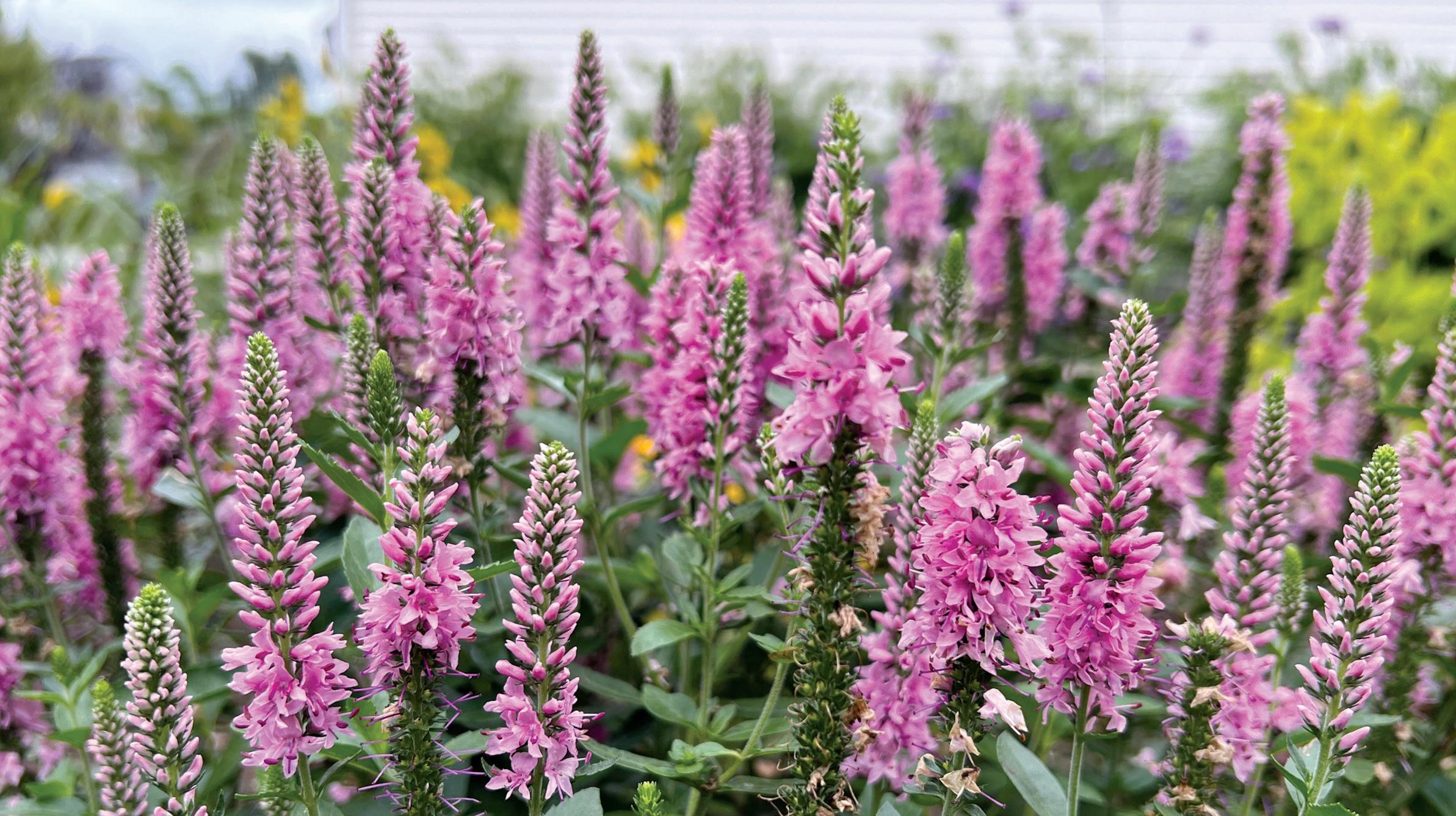
grasses, deep-rooted perennials and hardy shrubs that support drainage and stabilize slopes. These techniques move water to where it’s needed.
Other conservation methods include installing a rain garden or pondless waterfall or stream to recapture and reuse water. Replacing hard surfaces with porous materials or permeable pavers enables water to seep into the soil, supporting plant health. Before incorporating changes in the landscape, ask what is allowed by the city or town and obtain the necessary permits.
“Planting to keep water on your property to avoid runoff is a benefit to the greater environment,” says Melin. “Plants support overall water quality, which is a larger-scale benefit than your own backyard. Planting water-wise plants can help reduce the need for excess irrigation in times of drought, and this is where water conservation comes into play. Overall, there is a huge benefit in including plants that are water-wise.”
The Pennsylvania Horticultural Society (PHS) lists water-wise gardening as one of its top gardening trends for 2025. Such plants are drought-tolerant, which means they do not require frequent watering. Because they are typically adapted to the local climate, they hold their aesthetic appeal in times of stress.
“For home gardeners feeling frustrated with the constant maintenance of watering and keeping their gardens thriving in increasingly dry climates, water-wise gardening offers a solution,” says Andrew Bunting, vice president of horticulture at PHS. “From designing full gravel and crevice gardens to simply incorporating drought-tolerant plants, this sustainable approach reduces maintenance and helps create resilient gardens, even with increasing periods of drought.”
By planting a little tighter, plants will knit together faster, which does a few things. “Not only will it shade the soil and prevent weeds from germinating, it also works like mulch by keeping the soil a little cooler, and that translates into less watering,” says Heather
by Sue Markgraf
“Beyond getting plants established for the first few weeks after planting, I’m a miser with the watering wand,” says Here She Grows blogger Heather Blackmore. Here are a few plants that can handle her toughlove watering style. The list includes recommended plant hardiness zones from the U.S. Department of Agriculture (USDA), helping gardeners determine which perennials are most likely to thrive at their location.
• Skyward Pink Veronica from Darwin Perennials: Covered in pink spires during summer, this plant requires very little deadheading, grows about 15 inches tall, attracts pollinators and is a great front-of-the-border option. USDA hardiness zones 4 through 9.
Blackmore, a lifelong gardener and popular Hear She Grows blogger. “Keep in mind that the first year after planting you may require mulch, but after that, the plants will do most of the work so you won’t have to.”
Planting for conservation and protection offers benefits to the homeowner. “Less use of irrigation water means lower personal cost and saved time,” says Melin. “No more dragging a hose around or experiencing flagging plants when there is either too little or too much water.” Reading the plant tag provides information about lighting, watering and where to plant. The National Gardening Association, National Garden Bureau, local public gardens and plant-based community organizations provide educational resources for regional recommendations.
“Light makes a big difference in what type of drought-tolerant plants you choose,” Buzan says, “For example, are they going to be planted in full sun up against a brick building, or in dappled light on the outskirts of your yard?” For hot, dry spaces, Buzan recommends Sedum ‘Carl’ (stonecrop); Sesleria autumnalis, commonly known as autumn
• Amber Flower Carpet Rose: Apply a slow-release fertilizer in early spring for repeat flowering all season. This plant is disease-resistant and fragrant. Pollinators love them. USDA hardiness zones 4 through 10.
• Spring and Summer Alliums: Recommended varietals include ‘Summer Beauty’, ‘Bubble Bath’ and ‘Millennium’. These lollipop-like blooms on tall, sturdy stems are deer- and rabbit-resistant, and pollinator-friendly. USDA hardiness zones 4 through 8.
• Calamintha nepeta: These small white flowers blossom from summer to frost and have a minty fragrance. Nepeta is pollinator-friendly, drought-tolerant, and deer- and rabbit-resistant. USDA hardiness zones 5 through 7.

• SunBelievable ‘Golden Girl’ Helianthus: These drought-tolerant sunflowers will bloom until frost and are pollinator-friendly. USDA hardiness zones 10 through 11.
moor grass; and Calamintha nepeta ‘Montrose White’. Others are Perovskia ‘Denim ’n Lace’ Russian sage, Baptisia ‘Lemon Meringue’, Achillea ‘Sassy Summer Lemon’ and Thymus vulgaris ‘Common Thyme’.
Buzan cautions that new plants—even drought-tolerant varieties—need to be watered well through their first season to establish strong root systems. Be sure to water the soil, not the foliage, and consider using triple-ground hardwood bark mulch. “A decent drink three times per week should suffice, if they’re bedded down properly with hardwood mulch,” she says. “One of the biggest mistakes gardeners make is putting down some form of non-permeable landscape barrier and then topping it with a few inches of rock. That’s a great way to cook your plants.”
We lessen the workload and conserve resources by educating ourselves about plants and practices that are good for people and the planet. “You don’t know what you don’t know,” says Blackmore. “I find that when I attend a garden walk, for example, I always come away with a bit more knowledge. And
gardeners tend to be very generous with their knowledge.”
Sue Markgraf is a reporter, editor, columnist, field producer and media relations practitioner specializing in horticulture, environment and agriculture communications. Connect at GreenMarkPR.com.

by Zak Logan
Apost-exercise recovery plan for seasoned athletes and fitness enthusiasts alike can greatly influence soreness, muscle repair and the ability to tackle the next workout. Proper hydration and nutrition work together to optimize energy levels, repair tissues and reduce inflammation. Above all, it is important to tune in to the body’s needs and adapt post-workout strategies as needed. Recovery is a personal journey to achieving the best performance every day.
Water is fundamental for muscle and cardiovascular function, circulation, joint lubrication and body temperature regulation. During exercise, sweat and increased lung
function expel water and electrolytes, which can lead to dehydration if not replenished. Even a 1 to 2 percent fluid loss can impact bodily functions, reducing strength, power and endurance; impairing mental focus; increasing fatigue; delaying muscle recovery; and intensifying muscle soreness.
Maintaining proper hydration before, during and after exercise is an important part of every workout. The American Council on Exercise (ACE) recommends drinking 17 to 20 ounces of water two hours prior to exercising and seven to 10 ounces every 10 to 20 minutes during exercise. Post-workout, people are advised to drink 16 to 24 ounces of fluids for every pound of body weight lost during exercise, which would require
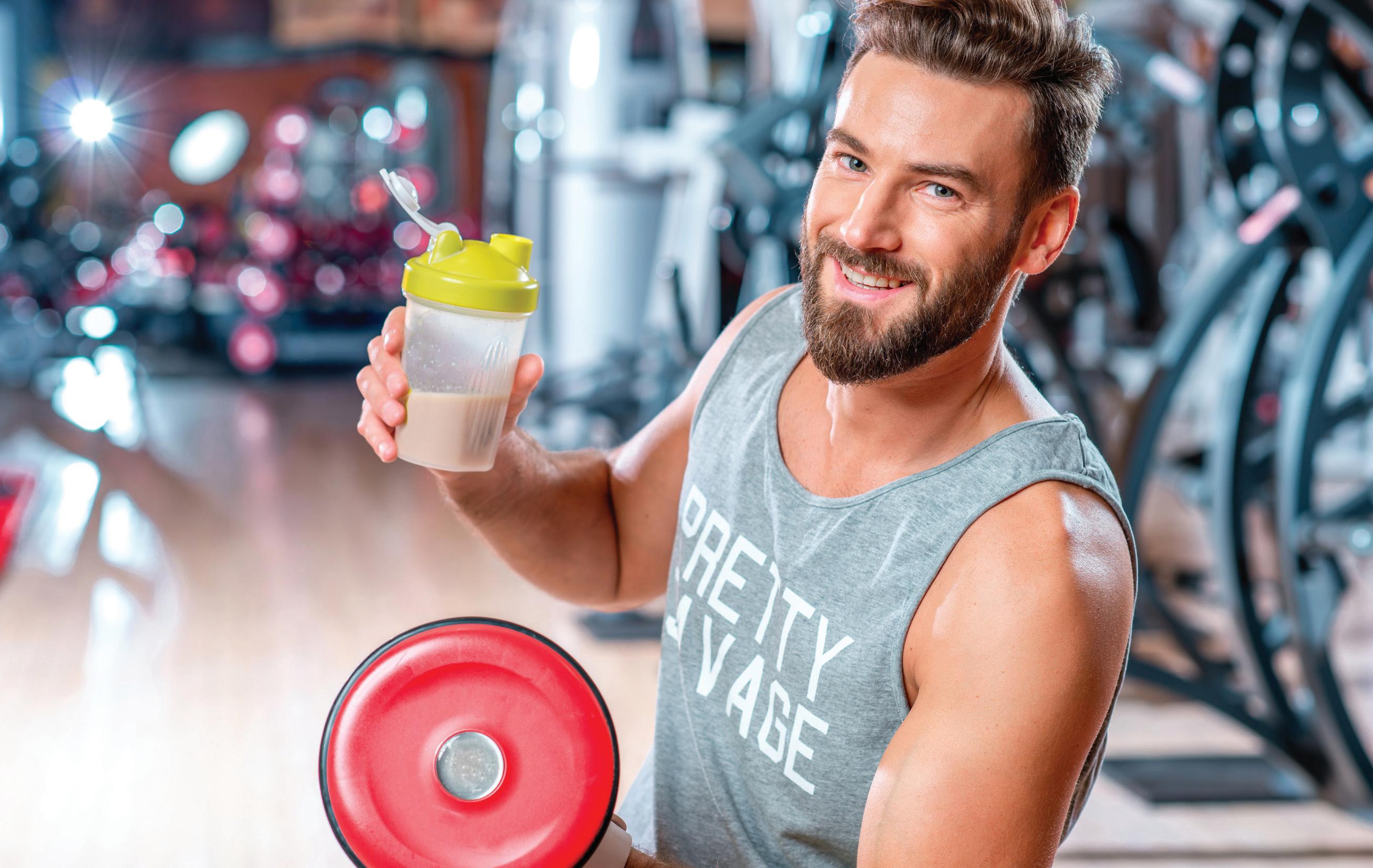

weighing in before and after each workout. A simple way to evaluate hydration levels is to check urine color—clear or light yellow is a sign of good hydration; a darker color indicates the need to drink more water.
According to ACE, if a workout is less than an hour long, only water is needed to rehydrate. For longer and high-intensity workouts, electrolyte replacement is advised. Electrolytes such as sodium, potassium, magnesium and calcium maintain muscle and nerve function. While many sports drinks provide a way to rehydrate and replace lost electrolytes, they may also contain sweeteners, artificial colors, flavors and preservatives.
Natural and homemade alternatives are equally effective. Coconut water has been called nature’s sports drink due to its electrolyte profile. Natural juices without added sugars or artificial ingredients have also been shown to be beneficial. Beetroot juice contains high concentrations of nitrate, which improves oxygenation and exercise performance by increasing nitric oxide production. Cherry juice is high in antioxidants and anthocyanins, which may improve muscle recovery. Grape juice is rich in flavonoid antioxidants, which may reduce oxidative stress and cell damage during exercise. For a quick and easy post-workout electrolyte drink, combine 16 ounces of water or iced rooibos tea with a pinch of salt, one teaspoon of honey and the juice of half a lemon.
Protein plays a central role in repairing microscopic tears and fiber growth that occur in muscles during exercise. The aim is to consume approximately 20 grams of protein during or after a workout. Carbohydrates restore depleted glycogen—the stored energy that is burned during exercise.
Pairing high-quality protein and nutrient-rich carbs can maximize recovery. The British Heart Foundation recommends a carbohydrate-to-protein ratio of three-to-one or four-to-one. Simple combinations such as Greek yogurt with berries or chicken with sweet potatoes, quinoa or brown rice are effective and quick to prepare. Another easy combination is a smoothie that combines animal-based (whey or casein) or plant-based (pea or hemp) protein with fruit-based carbohydrates like bananas or berries.
Exercise creates temporary inflammation as the body’s way of initiating the healing process. But chronic inflammation can slow recovery and increase soreness. Adding these natural, anti-inflammatory foods to a recovery diet will help mitigate soreness and improve recovery time.
• Turmeric and ginger have potent, anti-inflammatory properties. Add turmeric to curries, or steep ginger in tea after workouts.
• Fatty fish such as salmon and mackerel provide omega-3 fatty acids, known for reducing inflammation and joint pain.
• Berries and cherries are packed with antioxidants that repair cellular damage.
• Leafy greens such as spinach or kale can be added to smoothie bases or steamed as a side dish.
Get creative by combining protein, carbohydrates and antiinflammatory foods. Consider a quinoa bowl with turmeric-spiced salmon and steamed kale or a recovery smoothie with almond milk, mixed berries, flaxseed and fresh ginger.
Supplements should complement, not replace, a balanced diet. Whenever possible, prioritize whole, nutrient-dense foods over processed alternatives or supplements. Consulting with a dietitian nutritionist or other practitioner that specializes in sports medicine may help identify areas where supplementation is most beneficial.
Zak Logan is a freelance health writer dedicated to getting back to basics.

by Ruth Roberts, DVM, CVA, CVH, CVFT, NAN
Gut health is essential for a dog’s well-being. For optimal functioning, the gut depends on its microbiome, a collection of microorganisms throughout the digestive tract that modulate inflammation; assist with digestion and nutrient absorption; protect against harmful bacteria; and influence mood, behavior and stress responses.
A 2018 report published in Veterinary Clinics of North America: Small Animal Practice outlines our current understanding of how the gut microbiome in dogs and cats is closely intertwined with their immune system. A protective mucous layer separates gut microbes from the intestinal lining, acting as a barrier to prevent harmful bacteria from interacting with intestinal cells.
Specialized dendritic cells extend out of the mucous layer to monitor microbial activity, differentiating between helpful and harmful bacteria. Two types of white blood cells control the proliferation of detrimental bacteria and prevent infections: B cells, which produce antibodies that bind to pathogens and neutralize them; and macrophages that surround and kill offenders and remove the dead cells.
The gut microbiome also manages inflammation—ramping it up to fight infections or keeping it at bay at other times. Factors like
a poor diet, antibiotics and stress can disrupt the balance of beneficial and harmful bacteria, potentially exacerbating inflammation or creating other gut health issues.
“Many processed dog foods contain fillers and artificial ingredients that harm dog gut health over time,” says holistic pet health coach Denise Bozenski. “Artificial preservatives, colors and flavors disrupt the gut microbiome. Common ingredients like corn, wheat, soy and byproducts can cause inflammation and contribute to digestive issues.”
She recommends choosing high-quality foods made with whole, fresh ingredients, while avoiding heavily processed options packed with fillers. A homemade dog diet can be an excellent choice to promote gut health if it is balanced and made with naturally fresh ingredients. Variety is key for a healthy gut microbiome. A diet with diverse whole foods supports a pet's digestive system.
“A healthy gut needs a balance of fiber, protein, healthy fats, and essential vitamins and minerals. Omega-3 fatty acids from sources like fish or flaxseed oil also play a critical role in reducing inflammation,” explains Bozenski. She recommends a gut-friendly homemade meal plan that includes fiber-rich vegetables such as sweet potatoes, pumpkin, carrots and zucchini; easily digestible
proteins, including fish, poultry and turkey; prebiotics like flaxseeds and chicory root; healthy fats such as coconut or flaxseed oil; and fermented foods like kefir or plain yogurt that provide beneficial probiotics.
Switching a dog’s diet from processed to fresh food requires a progressive approach to avoid digestive upset. “Start by mixing a small amount of naturally fresh dog food with their current processed food, gradually increasing the fresh food portion over seven to 10 days. This gradual shift allows the dog's digestive system to adjust,” recommends Bozenski.
She also warns against common mistakes such as failing to balance the diet properly and relying too much on a single ingredient. “Dogs need a variety of nutrients. Without the right proportions of protein, fats and carbohydrates, their gut health could suffer. Additionally, feeding too much of one


by Sandra Yeyati
Judith Cruz is an avid warrior in the fight against hunger. For 15 years, she has served as president and CEO of the Treasure Coast Food Bank (TCFB), a regional hunger-relief nonprofit in Fort Pierce, Florida, that distributed 55 million meals last year, more than half of which consisted of fresh produce. She is a former board member of Feeding America and past chair of Feeding Florida.
ingredient can lead to an imbalance in the gut microbiome,” she explains, adding that it is best to consult with a holistic pet health coach or canine nutritionist to ensure the diet is balanced and supports gut health.
“It’s important to avoid feeding dogs toxic foods like onions, chocolate and certain spices,” stresses Bozenski. “Many dogs are also sensitive to specific ingredients, which can cause issues like itchiness or yeast overgrowth.” To identify problematic ingredients, owners can conduct a sensitivity test followed by an elimination diet, which removes certain foods one at a time to find the offenders.
Ruth Roberts is an integrative veterinarian and holistic health coach for pets, as well as the creator of The Original CrockPet Diet. Learn more at DrRuthRoberts.com.
Every day, Cruz and the hard-working employees and volunteers at TCFB aim to help the most vulnerable, including children, seniors and people facing costly medical bills, underemployment or other economic struggles. Through partnerships with local farmers, ranchers and retailers, the organization provides access to fresh fruits and vegetables, as well as dairy and protein options. TCFB collaborates with agencies, local governments and other nonprofits to take healthy sustenance into at-risk neighborhoods, including hard-to-reach rural communities, through mobile pantries.
Could you define food insecurity?
It’s a condition where people don’t have reliable access to healthy, affordable food on an ongoing basis. They might not know where their next meal is coming from. They might have limitations as to how many times a day or per week they can eat. Folks that are struggling with food insecurity might have only one meal a day and have limitations on what that would be. It might not be the most healthy meal. It could be low-quality food, and all of that has a negative impact on their overall physical and mental health and well-being.
How
Nationally, one in five people are food insecure, and certain groups are more vulnerable. When we talk about people struggling to put food on their table, it’s natural to visualize the commercials of families in other countries that are starving. In the
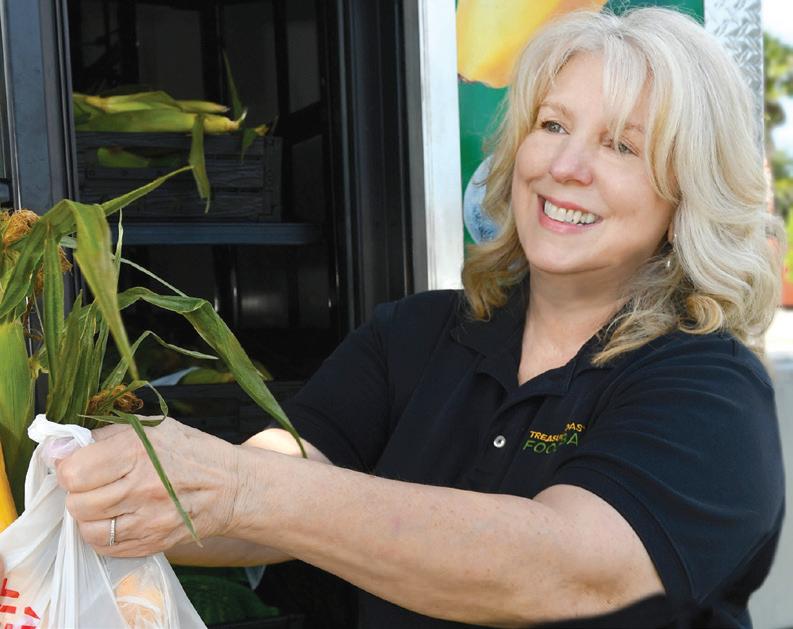
United States, people are starving in a different way. They are being filled with empty calories, creating a host of health issues and health disparities that accompany empty calories, including obesity. For children, eating poorly can result in disciplinary struggles.
are
Many things contribute to it, including poverty and food deserts. People living in low-income areas more than likely don’t have access to grocery stores or markets with healthy foods, so they’re eating empty calories. There are people struggling with underemployment, unemployment, the high cost of living, health issues or high medical bills. Here in Florida, rental housing has become unaffordable. And then there are the racial and ethnic disparities that people experience.
How does a food bank help people struggling with food insecurity?
This food bank is a bit of an innovator with more of a holistic approach. We take the person that is in need of assistance and look at the other areas where they’re struggling. It’s not just about providing food, but it’s providing those wraparound services that they may need to make it easier for them to lift themselves up out of the situation that they’re in.
Obviously, our core mission is to provide food now. In collaboration with partner agencies and emergency organizations, we supply food for distribution at soup kitchens and pantries, and also do our own distributions through mobile and pop-up pantries. But in addition, we also provide SNAP [food stamp] assistance and connect them to all kinds of social services through our benefits outreach programs and community partners. It’s kind of a one-stop shop for folks.
If you’re coming to us for food assistance, you can meet with our case manager and get information about housing, health care and other services in one sitting without having to go to different agencies. We also offer job training programs for people that need new training or a career path that can pay them a better living wage than what they’re currently earning. The goal is to reduce hunger not just by providing food, but by helping people with the different services and providing other essential items that they might need, like shampoo and cleaning products.
How important is the contribution of volunteers?
Volunteers are critical to every piece of our operation—without them, we couldn’t do it. Last year, we had just over 11,000 volunteers that provided over 45,000 hours of service working in food distribution, special events, the office and in the food production kitchen where we prepare meals every day.
Do you have hope?
I have hope because of the volunteers. After a natural disaster or at the worst time in someone's life, there’s always someone here doing what they can to make it better. Humanity always surprises me because we step up. I would encourage everybody to give their time, talent or treasure to any organization they care about. Nonprofits can’t do it alone. They need help from the community, and if folks have time or some money to give, that’s the best thing they can do for any organization, whether it’s a food bank, the arts or a children’s charity.
Sandra Yeyati is the national editor of Natural Awakenings magazine.
by Christina Connors
Teens are under tremendous pressure from academic demands, social expectations and the pervasive influence of technology, so it is crucial for them to have effective strategies to manage stress. By incorporating mindfulness practices into their daily life, they can develop resilience, reduce tension and enhance their overall well-being. A 2024 study published in the British Journal of Health Psychology found that just 10 minutes of daily mindfulness practice could significantly reduce symptoms
of anxiety and depression. Participants reported a 12.6 percent decrease in anxiety and a 19.2 percent reduction in depression.
Helping teens in their mental health journey requires a holistic approach that addresses their physical, emotional and social needs. By fostering a supportive environment, providing education and resources, and encouraging healthy habits, we can help them thrive and develop into buoyant, wellbalanced individuals.

“It’s so important to establish open, nonjudgmental communication with our teens,” advises Chanie Messinger, a Brooklyn-based occupational therapist, educator and motivational speaker. “Feeling safe to talk about and express their feelings—especially difficult ones—to a trusted adult is vital for ensuring mental health. A fun way to do this is to set aside one-on-one time each week to engage in an activity our child loves to do. This also shows our children that we notice what lights them up, helping them feel seen and understood.”
Self-care is not just a trend, but a necessary practice for maintaining mental and physical health. Teens can benefit immensely from self-care activities, such as creating do-it-yourself face masks with natural ingredients like oatmeal, avocado, aloe and green tea. This fun and relaxing activity can also improve skin health. Aromatherapy, using essential oils like lavender or eucalyptus, can enhance their mood and promote relaxation. These practices encourage teens to take time for themselves and develop healthy habits that can last a lifetime. “Joining the fun with your teen in this self-care practice is also a great way to bond and get to know them more deeply,” suggests Messinger.
Spring break is an excellent opportunity for teens to declutter and organize both their physical and digital spaces. Encouraging them to clean out their lockers, rooms and phones can reduce mental clutter and create a more ordered and efficient environment. Tips for staying organized, such as using planners, setting reminders and designating study areas, can help teens manage their time effectively and maintain a streamlined space, contributing to a clearer mind.
A study by the World Health Organization found that 11 percent of adolescents showed signs of problematic social media behavior, struggling to control their use and experiencing negative consequences. Girls reported higher levels of problematic social media use than boys (19 versus 13 percent). Thirty-six percent of young people reported constant contact with friends online, and 34 percent of adolescents played digital games daily, with more than one in five (22 percent) playing for at least four hours on days that they engaged in gaming.
A social media break can be a transformative experience for teens. “A key aspect of reducing the amount of time a teen spends on their device is giving them something healthy to fill that void,” says Michael Dzwil, senior director of clinical outreach for Newport Academy, a residential, mental health treatment facility for teens in New York. “Suggesting alternative activities, such as reading, exercising or spending time with family and friends in person, can help fill the gap left by social media and provide a refreshing change. Together
as a family, delete social media apps or at the very least turn off notifications, so that the time each family member chooses to look at social media is more intentional versus reactive.”
Teens often look to grownups for guidance. By openly discussing mental health, adults can help normalize it, reducing the stigma and shame that they might feel about their emotional and mental struggles. This openness may make it more likely for them to seek help when needed. By prioritizing wellness and mental health, adults send the message that self-care is important and acceptable.
As a community, it is our collective responsibility to ensure that teens have the tools and resources they need to thrive mentally and physically, paving the way for a healthier, more balanced future generation. Parents, guardians, teachers, school administrators, counselors and spiritual allies can all play a positive role in helping kids enter adulthood as happy, well-adjusted and well-equipped individuals.
Christina Connors is a writer, singer and creator of Christina’s Cottage, a YouTube series to strengthen kids’ resilience, connection and joy through music, mindful play and the power of the heart. Learn more at ChristinasCottage444.com.
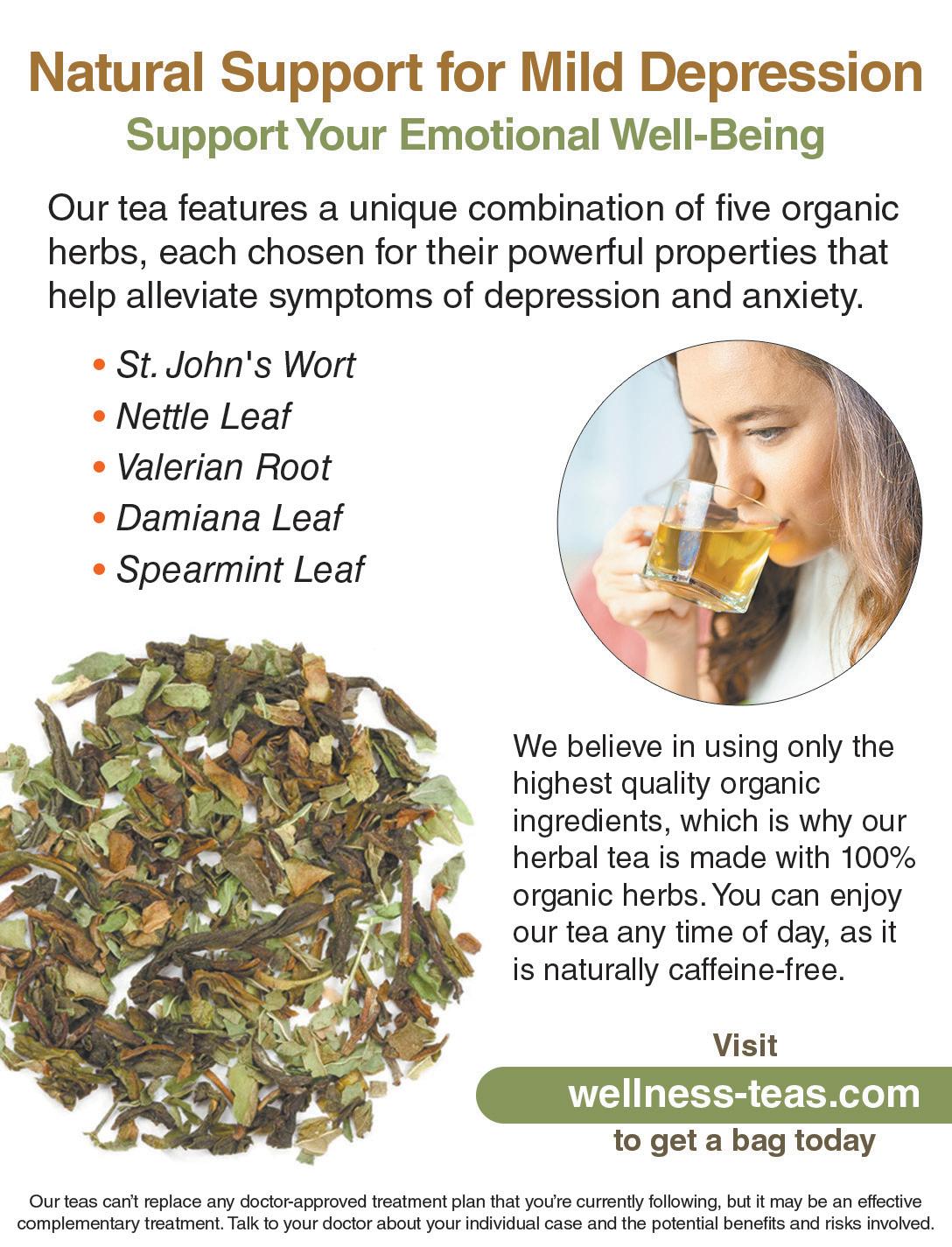
by Marlaina Donato
Healthy oils can quell chronic, systemic inflammation—a condition that significantly exacerbates the risks of cardiovascular illness, autoimmune conditions and neurodegenerative diseases like Alzheimer’s and Parkinson’s. Beneficial fats are indispensable for metabolic processes, brain function, hormone production and the absorption of vitamins A, D, E and K. For overall well-being, the optimal choices are cold-pressed, anti-inflammatory oils made from avocados, walnuts and flaxseeds, as well as extra-virgin olive oil and modest amounts of virgin coconut oil.
The typical American diet of drive-through meals and processed, packaged foods like salad dressing, ketchup, mayonnaise and sweet treats in the cookie aisle contains refined vegetable and seed oils. Whether it’s safflower, sunflower, corn, soybean, canola or cottonseed oil, these polyunsaturated fatty acid oils are often bleached, deodorized and chemically extracted with hexane to ensure a greater, more cost-effective yield with a longer shelf life. Such refinement methods destroy the naturally occurring antioxidants. Consequently, a diet high in ultra-processed foods containing seed and vegetable oils can increase systemic inflammation.
“Polyunsaturated fatty acids have multiple double bonds in their carbon chains. This structure makes them fragile and prone to becoming inflammatory compounds,” explains Sara Banta, a health coach and
supplement specialist in Newport Beach, California. “They also inhibit fatty acid beta-oxidation, making your body less efficient at using fat for fuel and leading to larger fat cells.”
Avocado Oil: Rich in monounsaturated fats and vitamin E, avocado oil is a versatile choice for moist muffins, roasted vegetables and flavorful homemade salad dressings. With a high smoke point, avocado oil is perfect for savory stir-fries and mouthwatering, healthy grills. In a study published in Disease Markers involving rat subjects, avocado oil was found to partially reverse inflammatory processes and reduce levels of triglycerides and low-density lipoprotein (“bad” cholesterol), without affecting highdensity lipoprotein (“good” cholesterol) levels. Banta cautions, “Most avocado oils are cut with seed oils. In fact, over 60 percent of the avocado oils are not pure avocado oil, so buyer beware. Look for a brand you trust that is organic.”
Olive Oil: Consider using extra-virgin olive oil, an important culinary staple that offers impeccable health properties and delicious flavor to appetizers, dipping sauces, salads and sautés. Studies have reported that regular consumption of olive oil may be linked to lower levels of certain markers of inflammation, including C-reactive protein and interleukin-6, as well as a lower risk of dying from cardiovascular disease. Banta notes that olive oil is a heart-healthy choice
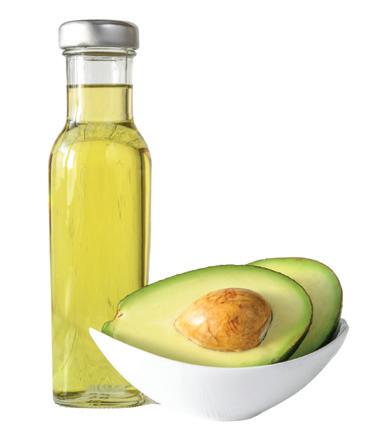
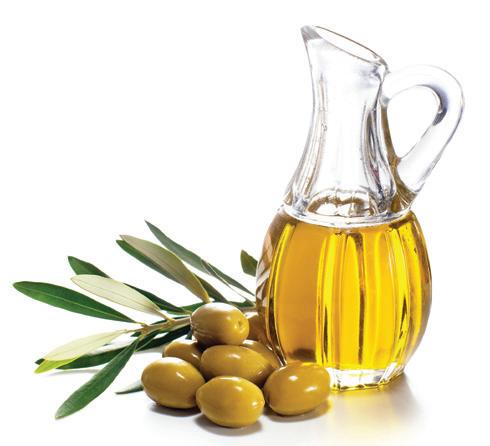

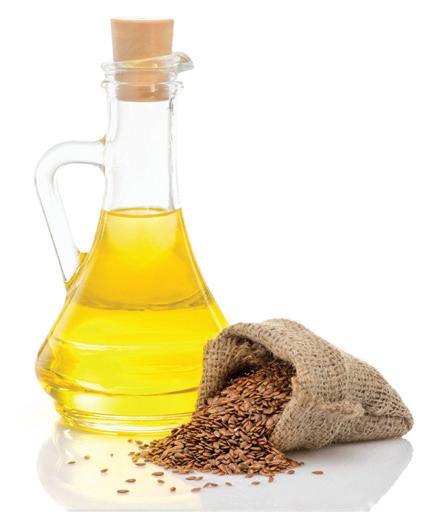

because of its high levels of monounsaturated fats and antioxidants, and a perfect oil for dressings and low-heat cooking. Organic, cold-pressed olive oil is the best option because it is processed without using high heat or chemical solvents.
Walnut Oil: According to a 2023 review published in Antioxidants, drizzling walnut oil over a grain bowl or grilled salmon may help prevent chronic inflammatory diseases and cancer. Rich in polyunsaturated fatty acids and prebiotics, it was found to promote the growth of beneficial gut bacteria, as well as urolithin, a potent natural compound with antioxidant and antiinflammatory properties.
Alpha-Linolenic Acid: Mayo Clinic suggests that alpha-linolenic acid, a plant-based
omega-3 fatty acid found in flaxseed oil, might help individuals with heart disease or women going through menopause. Flaxseed oil offers its powerful nutrients best when used unheated and can be whipped up in smoothies, sprinkled on soup, drizzled over salads or cottage cheese and added to protein-packed nut butter energy balls.
Coconut Oil: When used in moderation, coconut oil is also a versatile option in the kitchen for sautés, desserts, curries and healthy breakfast shakes. Research published in the Journal of Nutritional Science in 2024 suggests that this lauric acid-rich oil lowers inflammation and relieves COVID-19 symptoms. “Coconut oil offers numerous health benefits due to its unique composition and stability at high temperatures,” says Banta. “Rich in medium-chain
triglycerides, coconut oil provides a quick and efficient energy source, supporting metabolism and promoting fat burning.”
When eating out, be mindful that most salad dressings and marinades are likely to contain highly processed, inflammatory oils. To minimize ill effects, Banta recommends asking for salad dressing on the side or replacing it with vinegar or lemon; requesting that the chef use the healthier option of real butter instead of vegetable or seed oil; and avoiding fried foods.
Marlaina Donato is an author, painter and composer. Connect at WildflowersAndWoodSmoke.com.

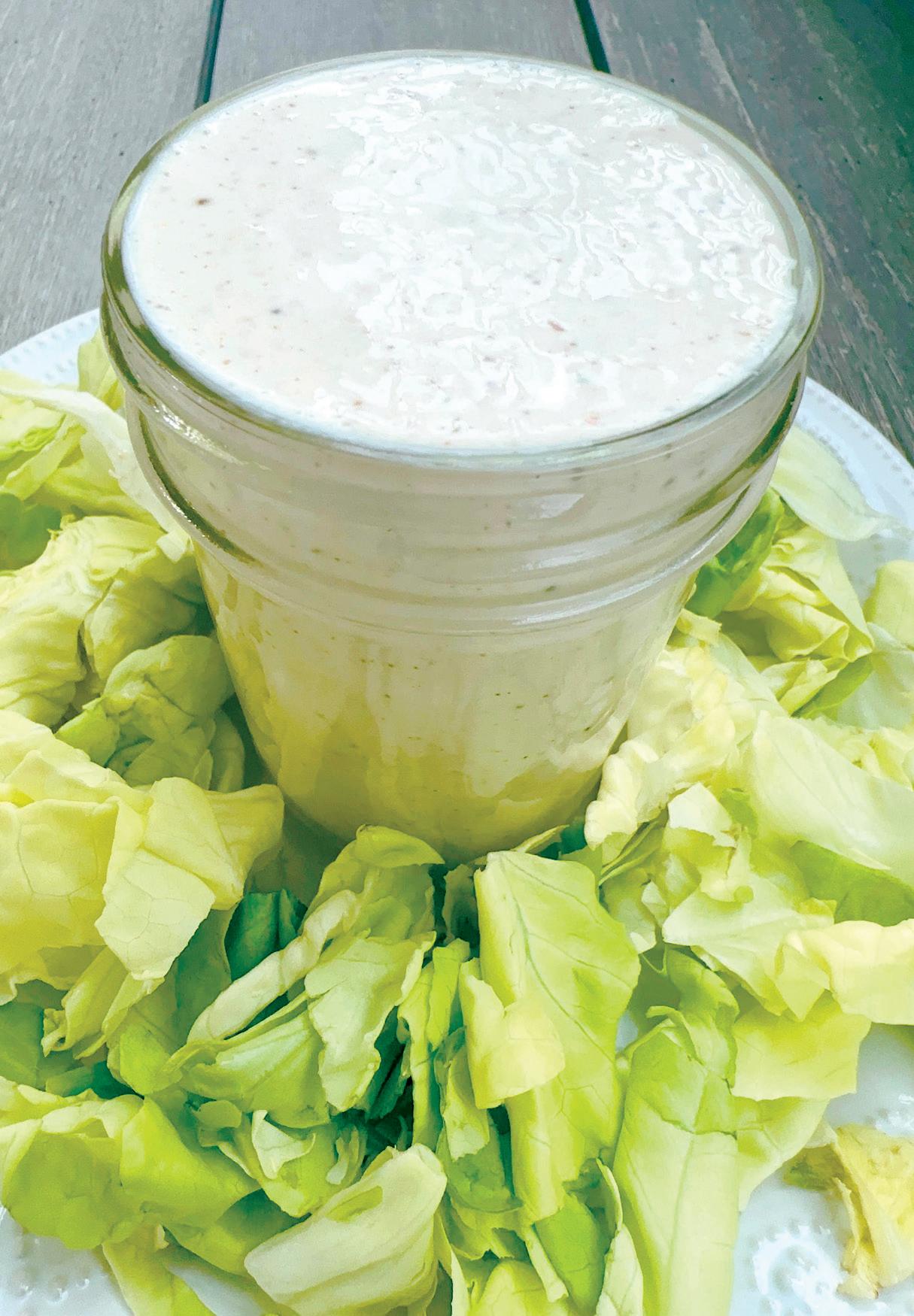
YIELD: 8 SERVINGS (ABOUT 16 TBSP)
⅔ cup organic fat-free Greek yogurt
2 Tbsp lemon juice
1 Tbsp paleo, avocado oil-based mayonnaise (such as Primal Kitchen)
1 Tbsp Dijon mustard
2 to 3 anchovies in oil
½ tsp sea salt
¼ tsp black pepper
¼ cup shredded Parmesan cheese (optional)
Pinch garlic powder (optional)
Blend everything in a mini blender until smooth. Serve over butter lettuce with cucumbers, shredded carrots and bell peppers, or use as a dip for veggies.
Recipe and image courtesy of Sara Banta.

YIELD: 4 TO 6 SERVINGS
4 to 6 8-oz, 1-inch-thick salmon filets, skin-on
1 Tbsp avocado oil
2 tsp sea salt
1 lemon cut into 4 wedges
Prepare an outdoor grill for direct cooking over high heat at 450° to 550° F. Brush the cooking grates clean and close the lid to heat. Alternatively, heat a castiron pan over very high heat.
Generously coat the flesh side of the salmon filets with oil and season evenly with salt. Grill the salmon, skin side down, over direct high heat with the lid closed, or in the pan, for about six to eight minutes or until the fish lightens in color, becomes more firm to the touch and can be lifted off the cooking grates or pan without sticking.
Turn the salmon over, close the lid, and cook until the meat reaches 130° F—about two to four minutes for medium rare or longer for desired doneness. Transfer to a platter to rest for one to two minutes.
Slide the salmon skin off the filets and serve with wedges of lemon and a side salad or veggies of choice.
Recipe courtesy of Sara Banta.
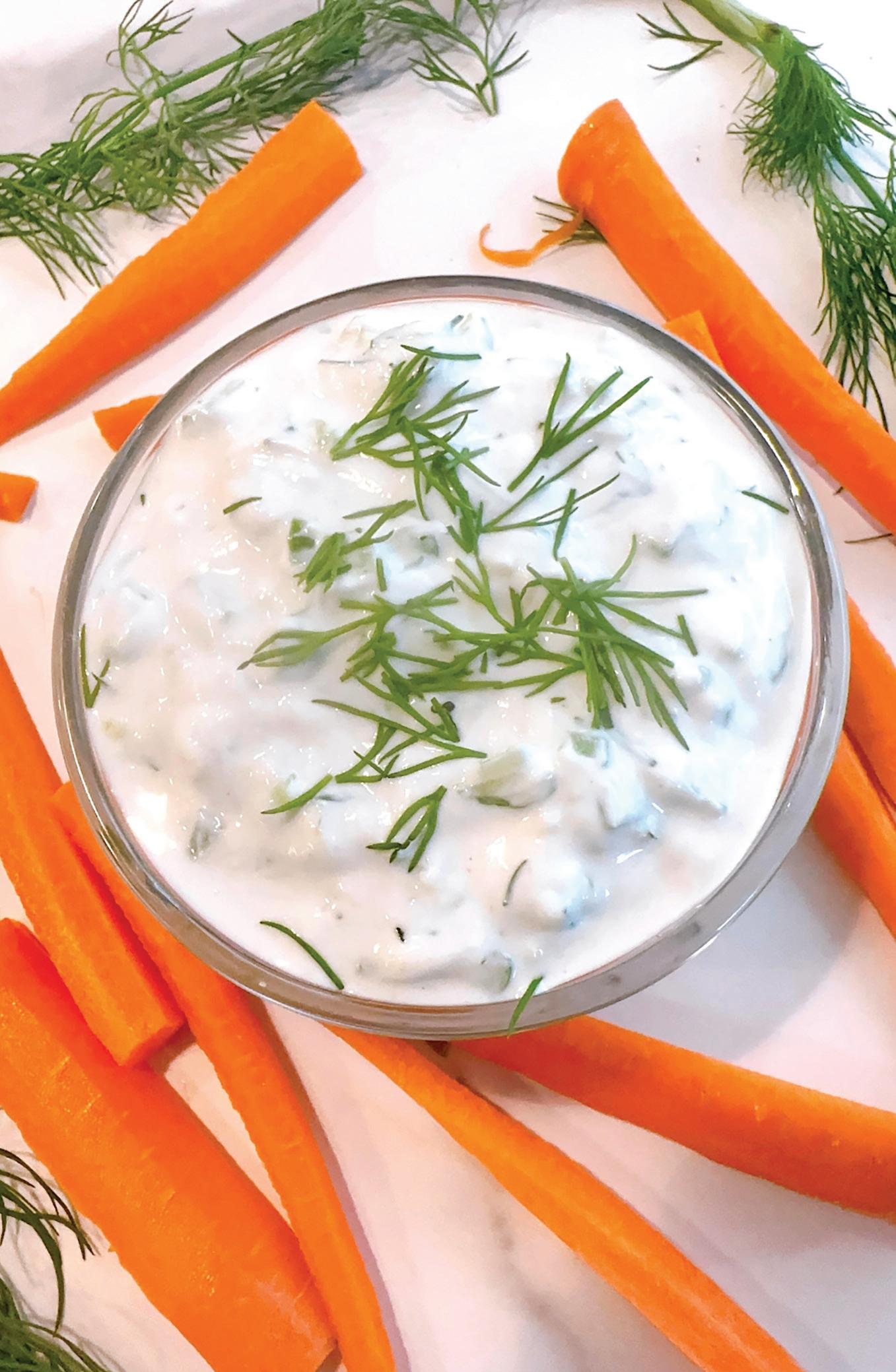
YIELD: 4 SERVINGS
2 mini-Persian cucumbers, chopped into small pieces
2 tsp sea salt, divided
1 cup Greek yogurt (any fat percentage)
1 Tbsp lemon juice
1 Tbsp finely chopped fresh dill
Sprinkle chopped cucumbers with one teaspoon of salt and let them rest in a colander for 10 minutes to draw out some moisture.
Pat dry with a paper towel.
Combine the cucumbers, Greek yogurt, lemon juice, dill and remaining salt and stir until well incorporated. Serve over vegetables or meats as a dressing or dip.
Recipe and image courtesy of Sara Banta.

YIELD: 8 SERVINGS
1 Tbsp avocado or olive oil
½ cup carrots, finely chopped
½ cup zucchini, finely chopped and blotted dry
1 lb grass-fed ground bison
1 lb grass-fed ground lamb
1 egg
7 Tbsp barbecue sauce, divided (such as Noble Made or Primal Kitchen)
1 Tbsp coconut aminos
¼ cup coconut flour
2 tsp sea salt
½ tsp dried oregano
Heat oven to 350° F. Coat a loaf pan with avocado oil cooking spray.
Heat oil in a medium pan over medium heat. Add the carrots and zucchini and sauté for five minutes. Remove vegetables from the pan and place in a large bowl.
Add the bison, lamb and egg to the bowl. Use a rubber spatula to combine well. Add 5 tablespoons of barbecue sauce, coconut aminos, coconut flour, salt and oregano and stir to combine.
Add mixture to the loaf pan and press down to flatten. Bake for 35 minutes. Spread the remaining 2 tablespoons of barbecue sauce on top and return to the oven for five additional minutes or until the internal temperature reaches 160° F.
To make these into meatballs, instead of placing the mixture in a loaf pan, roll them into golf ball-sized balls. Working in batches, heat a small amount of oil in a sauté pan and cook the meatballs over medium heat for about three minutes until browned on all sides. Add the pan filled with browned meatballs to a 350° F oven for four to five minutes or until cooked through.
Recipe courtesy of Sara Banta.
by Marlaina Donato
One moment, the Earth is in the fierce grip of winter, and the next, thawing soil and new green prevail. The month of March is a time of both sudden snow squalls and unexpected, delicate sunlight. We are in that liminal space of uncertainty, half-cloaked in weariness, yet filled with flowering hope, when natural forces seem to articulate the ineffable quality of being human.
Nature outgrows uncertainties with awkward grace, succumbing to unspoken burdens, every now and then exhaling with a good storm that rattles the windows and the bones. In our folklore, nature is a mother— a woman that mourns her daughter’s departure in winter and rejoices her return in spring. Like Demeter of Greek mythology, we embody the seasons, but it is not always easy to accept our March phases, when we cannot make up our minds about who we are, what we want or which face we wish to show the world.

The world celebrates International Women’s Day on March 8, and a few inspiring names come to mind, including poet Maya Angelou, activists Rosa Parks and Malala Yousafzai, aviation pioneer Amelia Earhart, media mogul Oprah Winfrey and marine conservationist Rachel Carson. Humbler, but equally impactful ladies also deserve our recognition, including our grandmothers and mothers that ran the house with lively

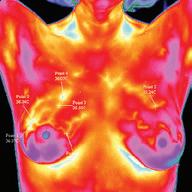
aplomb, or our aunts and older sisters that offered crucial advice for our first school dance. We also recall and honor the women we lost too soon—girlfriends that moved far away, co-workers that succumbed to COVID-19 and mothers we lost to cancer. We may even mourn our younger selves and the innocence of yesteryear.
March whispers, “It’s okay. Soften, and allow for all your humanness.” She teaches us a lot, if we listen. This month, be inspired to:
• Laugh at yourself and embrace imperfections.
• Display fresh flowers around the house.
• Thank the women in your life for their unique gifts.
Marlaina Donato is an author, painter and composer. Connect at WildflowersAndWoodSmoke.com.







6 Nights, Grand Ca ymans, Bahamas & Mexico Celebr ity Cr uise and Air Fare f or Two People, plus...


VIP Event Tickets, Signed Author Books, Natural Beauty Products, Health Programs and more!
NO PURCHASE NECESSARY TO WIN





Pr izes Cour tesy of Sponsors and Exhibitors of The Bes t Prep for Pregnancy Event and Expo

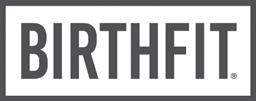



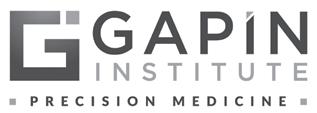









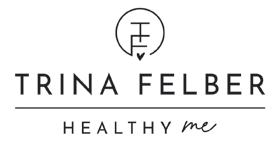


Somatics and Yoga Half Day Retreat – 9am12pm. Rest, recharge, and rejuvenate at this half-day self-care retreat and create greater balance & peace in your life. Immerse yourself in a range of self-care practices to nurture the whole person. These practices can help you reduce anxiety and stress, become more centered and empower you to create a more balanced, peaceful life. Register at InnerworkCenter.org. Innerwork Center, 213 Roseneath Rd. Richmond, VA. 804-359-0384. $18+.
Sunday, March 16
Candlelight Yoga Nidra – 4-5:15pm. Discover the profound relaxation and rejuvenation of Yoga Nidra, a guided meditation practice that invites you to journey into a state of deep rest and inner peace. Often referred to as yogic sleep, this practice allows the body and mind to experience complete stillness while remaining conscious, promoting healing, reducing stress, and fostering mental clarity. Register at InnerworkCenter. org. Innerwork Center, 213 Roseneath Rd. Richmond, VA. 804-359-0384. $18+.
Meditation Series with Metta – 11am-1pm (2/2 & 2/16) Join Metta for a 90-minute session for guided meditation, prayer, and journaling/ reflection. SoulShine Studios, 9200 Stony Point Pkwy, Richmond, VA 804-355-9593 SoulShineStudios.com/events $45.
Goat Yoga Brunch & Bubbly – 11:30am1:30pm. Pactamere Farm and Goat Yoga RVA are hosting morning goat yoga followed by a delicious brunch with unlimited mimosas. During the 45-minute class, your certified instructor will guide you into a series of poses with the assistance of our 26 Nigerian dwarf goat yogis. Pactamere Farm, 15577 Stone Horse Creek Rd., Glen Allen, VA. Tickets available at PactamereFarm.com. $65.
Sunday Sound Meditation – 6:30-7:30pm. Experience the profound effects of sound vibrations as you journey inward on a wave of relaxation and healing. $5-$25 sliding scale. LivingWaterrva.com. 1000 Westover Hills Blvd, Richmond, VA.
The Bench – Community Sit (every 4th Sunday) – 4-5pm. Step away from the noise and into stillness. The Bench is a simple gathering for shared silence, open to everyone regardless of experience or background. There is no agenda, no particular style, no instruction, and no expectations. It’s an invitation to simply come as you are, sit in silence, and be. 804-359-0384 Register at InnerworkCenter.org. Innerwork Center, 213 Roseneath Rd., Richmond, VA. Free.
Monday
Level 2 Flow Yoga – 9-10:15am. Start your week right with a yoga class that is beyond a beginner’s level. Participants will
Tuesday, March 18
The Memento Mori Sessions – 6-8pm. A facilitated exploration of personal mortality. This three-part workshop includes: understanding the life review process, and conducting a personal life review; exploring our personal legacies; and finalizing personal end of life decision making. Register at InnerworkCenter. org. Innerwork Center, 213 Roseneath Rd. Richmond, VA. 804-359-0384. $90+.
Friday, March 21
Creating Unity Through Song and Story – 6:30-8pm. A song circle will begin the workshop with an emphasis on opening ourselves up for sound and music to move through. We will learn one song to sing together, after which Liza Newell will share humorous Irish folk tales to enliven your spirits. Register at InnerworkCenter. org. Innerwork Center, 213 Roseneath Rd. Richmond, VA. 804-359-0384. $90+.
Saturday, March 22
Sorting the Inner Clutter: Balance and Re-orientation for Caregivers – 3-5pm. A restorative two-hour yoga and somatic experience crafted with caregivers in mind. Connect with others who understand your journey, share in supportive reflection, and
incorporate new poses and increasingly challenging options. $70/4 classes/mo, $20/ drop-in.Glenmore Yoga & Wellness Center, 10442 Ridgefield Pkwy, 804-741-5267. GlenmoreYoga.com.
Ageless Yoga – 10:30-11:45am. A balanced practice that incorporates basic yoga postures, breath awareness and relaxation. Poses are modified to meet individual needs. Students transfer to and from the floor and the class generally includes a Vinyasa flow of standing poses, guided by breath for a portion of class time to increase stamina and strength. Students continue to develop body awareness to keep the joins safe, increasing range of motion and improving balance. Glenmore Yoga & Wellness Center, 10442 Ridgefield Pkwy. 804-741-5267. GlenmoreYoga.com.
Beginner Qigong with Jonah Marsh –5:30-6:45pm. Qigong is an ancient practice which combines graceful movements with abdominal breathing and mindfulness, allowing us to connect with nature and balance the body ’s circadian rhythms. Jonah has been studying Chinese internal martial arts and qigong since 2011. $5-$25 sliding scale. LivingWaterrva.com. 1000 Westover Hills Blvd., Richmond, VA.
The Artist's Way – 6:30-8:30pm. This 12-week course is for all who seek to get in touch with their imagination, inner self, and playful nature. 804-359-0384 Register at InnerworkCenter. org. Innerwork Center 213 Roseneath Rd., Richmond, VA. $155+ Scholarships available.
Tuesday
Beginner-Level Yoga – 9-10:15am. Balanced practice that incorporates basic yoga postures, breath awareness & relaxation.
leave feeling refreshed and grounded. Register at InnerworkCenter.org. Innerwork Center, 213 Roseneath Rd. Richmond, VA. 804-359-0384. $35+.
Saturday, March 29
Level 1 Foraging: Plant ID and Foraging –10am-2pm. Learn wild edible plants you can begin harvesting today plus poisonous lookalikes! All plants in this course are common, and wild plants are available in Virginia – many of them are weeds you likely have in your yard or community at home. This is a beginnerfriendly course and a required pre-requisite for foraging levels 2, 3 and 4. Register at TracksAndRoots.com. Forest Hill Park 4021 Forest Hill Ave, Richmond, VA 23225. $79. Girls on the Run Piedmont Sneaker Soiree – 7-10pm. Celebrate 12 amazing years of empowering girls with Girls on the Run Piedmont at our 2nd Annual Sneaker Soiree! Expect a fun semi-formal evening (leave the heels at home and rock your sneakers)! Dinner, drinks, dancing, silent auction, wine pull and inspiring messages. Business sponsorships available. Proceeds support scholarships and running shoes for girls in need. Stevenson Ridge Event Center 6901 Meeting St. Spotsylvania, VA. Register at GOTRPiedmont.com/sneakersoiree. 540-296-GOTR. $60+.
Postures modified to meet individual needs. Online & in-person. $70/4 classes/mo, $20/ drop-in. Glenmore Yoga & Wellness Center, 10442 Ridgefield Pkwy. 804-741-5267. GlenmoreYoga.com.
Yoga for Bone Health – 9:45-11am. Increase bone & muscle through the use of yoga with a combination of dynamic & static yoga poses. Chris Riely. $70/4 classes/mo, $20/drop-in. Glenmore Yoga & Wellness Center, 10442 Ridgefield Pkwy. Registration required: 804741-5267 or GlenmoreYoga.com.
Fundamentals Pilates Mat Class (Online) – 10:45am-12pm. This Pilates Mat Class with Dianne Powers will include the basic exercises emphasizing alignment, elongation of the spine and healthy posture. It will focus on the execution of efficient movement achieving improved core strength and endurance. $70/4 classes/mo, $20/drop-in. Glenmore Yoga & Wellness Center, 10442 Ridgefield Pkwy. 804741-5267. GlenmoreYoga.com.
Slow and Gentle Yoga – 11:30am-12:45pm. An in-studio or online class with a yoga therapist. $70 for 4 classes in a month; $20 drop-in. Glenmore Yoga & Wellness Center, 10442 Ridgefield Pkwy. 804-741-5267. GlenmoreYoga.com.
Men’s Grief Discussion – 1:30-3pm (1st & 3rd Tuesday). This group is peer led, free and a place to listen or share grief experiences with others with similar grief experiences. Open to anyone that has lost a significant other or spouse. Bliley's Funeral Home 3801 Augusta Ave., Richmond, VA. 804-355-3800.
Mixed Level 1 & 2 Yoga – 5-6:15pm. This Mixed Level 1 & 2 yoga class is both in-studio and online. End your work day with this yoga class that will move through all the muscles and
joints, transitioning from beginner yoga poses into more challenging poses. If joining online, please register in advance to get the Zoom link. $70/4 classes/mo, $20/drop-in. Glenmore Yoga & Wellness Center, 10442 Ridgefield Pkwy. 804-741-5267. GlenmoreYoga.com.
Qigong – 5:30-6:30pm. Qigong refers to movement practices developed in ancient China and literally means energy work or energy skill. Qigong movements are done slowly and in harmony with one's mindintention and breath, fully bringing one into the present moment and fostering an alert yet calm state of mind. 804-359-0384 Register at InnerworkCenter.org. Innerwork Center, 213 Roseneath Rd. Richmond, VA $17+.
Tuesday Night Gentle Flow into Restoration – 6:30-7:30pm. A nourishing and relaxing 60-minute gentle hatha yoga flow with restorative yoga poses (using props). Suitable for any level, sliding-scale, drop-in & props provided. Leave feeling relaxed, restored & rejuvenated. Like all Living Water classes, this one is sliding scale, $5-$25. Living Water Community Center. 1000 Westover Hills Blvd. LivingWaterrva.com/events.
Wednesday
Yin Yoga (In Studio & Online) - 9-10:30am. This quiet practice with Erin Forsyth, ERYT500, focuses on the deep connective tissue in the lower back, hips and pelvis. Poses are generally limited to seated or reclined. The poses apply passive pressure to the joints, ligaments and tendons and are held for 3 to 5 minutes. While holding, students practice staying mentally attentive by focusing on the breath and to what their body feels in the pose. For the online class, please register in advance to get the Zoom link. Glenmore Yoga & Wellness Center, 10442 Ridgefield Pkwy. 804-741-5267. GlenmoreYoga.com. $20.
Intermediate Flow Pilates Mat Class – 9:1510:30am. A Pilates mat class with a focus on intermediate mat exercises. $70/4 classes/ mo, $20/drop-in. Glenmore Yoga & Wellness Center, 10442 Ridgefield Pkwy. 804-741-5267. GlenmoreYoga.com.
Ageless Yoga – 10:45am-12pm. A balanced practice that incorporates basic yoga postures, breath awareness and relaxation. Poses are modified to meet individual needs. Class generally includes a vinyasa flow of standing poses, guided by breath for a portion of class time to increase stamina and strength. Students continue to develop body awareness to keep the joins safe, increasing range of motion and improving balance. $70/4 classes/ mo, $20/drop-in. Glenmore Yoga & Wellness Center, 10442 Ridgefield Pkwy. 804-741-5267. GlenmoreYoga.com.
Gentle Yoga – 11am-12:15pm. This class features gentle yoga stretches, postures, breath awareness and relaxation to improve flexibility, strength, range of motion, balance and energy. Designed for those recovering from injuries, illness, inactivity or other health considerations. $70/4 classes/mo, $20/drop-in. Glenmore Yoga & Wellness Center, 10442 Ridgefield Pkwy. 804-741-5267. GlenmoreYoga.com.
Vino Vinyasa - 12-1pm. Join instructor Ann Marie Lewis for a strong yoga practice! Rinse out your body and mind with a dose
of structural, functional flow yoga at Ashton Creek Vineyard. You are encouraged to stay after class to enjoy some locally produced wine and nibbles! Bring a yoga mat, 2 blocks and a strap. Ashton Creek Vineyard, 14501 Jefferson Davis Hwy, Chester, VA. 804-5365869. $15.
Widow’s Tea Talk – 1:30-3pm (Every 4th Wednesday). This group is peer led, free and a place to listen or share grief experiences with others with similar grief experiences. Open to anyone that has lost a significant other or spouse. Bliley's Funeral Home, 3801 Augusta Ave., Richmond, VA. 804-355-3800.
Restorative Sound Healing – 6:30-7:30pm. Relax your mind and body with the calming melodies of 432Hz-tuned crystal singing bowls, Himalayan singing bowls, Koshi chimes, shell chimes, tuning forks and more. Register at Innerworkcenter.org. Innerwork Center, 213 Roseneath Rd. Richmond, VA. 804359-0384. $18+.
Small Group Mat Pilates – 8-8:45am. Join Mary Beth Blend, a Physical Therapist with over 20 years of expertise, for an enriching 5-week Experiential Pilates Mat Class series. With a focus on posture refinement and core strength enhancement, you'll learn how Pilates can positively impact your body and overall well-being. SoulShine Studios 9200 Stony Point Pkwy., Richmond, VA. 804-3559593. SoulShineStudios.com/events. $100 for the four-week series.
Vinyasa Flow – 9-10:15am. Join Glenmore Yoga's Randi Weiss, E-RYT 500, for an inperson or online Vinyasa Flow class that incorporates all aspects of a traditional Hatha yoga class – postures, breath & meditation while challenging your coordination through flow. Please register in advance. $70/4 classes/mo, $20/drop-in. Glenmore Yoga & Wellness Center, 10442 Ridgefield Pkwy. 804741-5267. GlenmoreYoga.com.
Fundamentals Pilates Mat Class – 10:45am12pm. This Pilates Mat Class with Dianne Powers will include the basic exercises emphasizing alignment, elongation of the spine and healthy posture. It will focus on the execution of efficient movement achieving improved core strength and endurance. $70/4 classes/mo, $20/drop-in. Glenmore Yoga & Wellness Center, 10442 Ridgefield Pkwy. 804741-5267. GlenmoreYoga.com.
Chair Yoga – 10:30-11:45am. This online Chair Yoga class via Zoom for older adults offers a balanced yoga practice which incorporates basic yoga postures, breath awareness and relaxation. Students continue to develop body awareness to keep the joints safe, increase range of motion and improve balance. Please register in advance to get the Zoom link. GlenmoreYoga.com.
YOGAbility – 11am-12:15pm. In-studio therapeutic yoga class designed to educate, assess and help you progress in everyday life skills including functional abilities of work, rest and play. Highlighted are abilities of aligned posture, dynamic balance and increased mobility. Glenmore Yoga & Wellness Center, 10442 Ridgefield Pkwy. 804-741-5267. GlenmoreYoga.com. $20.
Online Beginner Yoga – 6-7:15pm. A balanced practice that incorporates basic yoga postures, breath awareness and relaxation. Postures are modified to meet individual needs. Please register in advance to get the Zoom link for this online class. Glenmore Yoga & Wellness Center, 10442 Ridgefield Pkwy. 804-741-5267. GlenmoreYoga.com.
Yin Yoga – 9-10:15am This 75-minute instudio Yin yoga class is a great way to end the week. The quiet practice focuses on the deep connective tissue in the lower back, hips and pelvis. Poses are generally limited to seated or reclined. The poses apply passive pressure (muscularly soft) to the joints, ligaments and tendons and are held for 3-5 minutes. Glenmore Yoga & Wellness Center, 10442 Ridgefield Pkwy. 804-741-5267. GlenmoreYoga.com. $20.
Online Tibetan Rites – 10:30am-11:45pm. The Five Tibetan Rites is a system of exercises reported to be more than 2,500 years old. The Rites are said to be a form of Tibetan yoga similar to the yoga series that originated in India. The Five Tibetan Rites enhance mental clarity and memory, balance the hormones, improve health and support emotional well-being. This is an onlineonly class; please register in advance to get the Zoom link. Glenmore Yoga & Wellness Center, 10442 Ridgefield Pkwy. 804-741-5267. GlenmoreYoga.com.
Level 1 & 2 Yoga – 10:45am-12noon. This instudio traditional yoga class takes students beyond the beginner level. The class will flow through poses and include more challenging options, ending with a relaxation session. $70/4 classes/mo, $20/drop-in. Glenmore Yoga & Wellness Center, 10442 Ridgefield Pkwy. 804-741-5267. GlenmoreYoga.com.
Mixed-Level Yoga – 9-10:15am. Start the weekend off right w/a yoga class appropriate for all levels. Guidance given throughout practice, offering individual students a number of appropriate options. In-person & online. $70/4 classes/mo, $20/drop-in. Zoom. Register, Glenmore Yoga, 804-741-5267 or GlenmoreYoga.com.
Aerial Yoga – 10:45am-12pm. This beginnerfriendly class for adults of all ages combines traditional yoga with the support of a suspended silk hammock. You will be guided through a series of poses and flows designed to strengthen, lengthen, and open the body, leaving you feeling confident, connected, and relaxed. $20 Host of Sparrows Aerial Circus, 97 Manchester Road, Richmond, VA. 804-6150309. HostOfSparrows.com.
Beginning Qigong – (2/8 & 2/22) - 12-1pm. This one-hour class will introduce the basic warmup exercises of a Qigong practice. Qigong is a healing modality that uses breath, focus and movement to move energy throughout the body. The class will focus on proper alignment, breathing, and focus. All the movements will be explained, demonstrated, and practiced. SoulShine Studios, 9200 Stony Point Pkwy, Richmond, VA. 804-355-9593. Soulshinestudios.com/events $45.
Connecting you to the leaders in natural health care and green living in our community. To find out how you can be included in the Community Resource Guide, email Regina@NARichmond.com to request our media kit.
DRS. MAXINE AND JOE ABRETSKI
Omni Family Chiropractic 6806 Patterson Ave. Richmond, VA 23226
804-214-6236

om We specialize in family-based wellness health care, focusing on correcting the structure of the spine and the function of the nervous system. Our goal is to help families live to their healthiest potential naturally. By addressing spinal alignment and nervous system health, we aim to enhance overall well-being and support longterm health!
WELLCOMEMD
2500 Gaskins Rd, Ste A 866-942-4522 · WellcomeMD.com infoRichmond@WellcomeMD.com

Experience concierge medicine with a functional medicine approach. Comprehensive and proactive, limited number of patients, unhurried 30-minute consultations for a personal and effective relationship with your physician. Schedule a discovery call today. See ad, page 6.
LINDA ZAFFRAM, LCSW, CYT200, PMH-C
Healing Circle Counseling 2819 N. Parham Road, Suite 130 Richmond, VA 23294
804-924-7600
HealingCircleCounseling.com

Linda Zaffram is the founder, owner and CEO of Healing Circle Counseling and Services. Linda’s areas of expertise include adults, women’s issues, depression, panic/ anxiety, PTSD, grief/bereavement, perinatal loss/stillbirth/miscarriage, perinatal mood disorders, maternal mental health, fertility/reproductive issues, NICU families, emotional, physical & sexual abuse, trauma, birth trauma, stress management, relationship issues, life transitions, communication skill building and developing coping skills.
CHERYL DESVERNINE
Braniac Wellness
804-250-3450
BraniacWellness.org

Cheryl is board-certified (BCN) in neurofeedback and has been practicing neurofeedback over the last eight years. We offer neurofeedback, eye movement therapy and traditional counseling to clients ages 6 and up. Neurofeedback is an intervention that improves symptoms associated with ADHD, anxiety, panic, PTSD, trauma, depression and more that is holistic and does not require medication.
NEIGHBORS AND HEROD FAMILY DENTISTRY
Dr. Brian Herod 1009 Crowder Dr., Midlothian, VA 23113 804-794-8745 • MidloDental.com

Dr. Brian Herod centers his holistic dentistry practice on the connection between oral and systemic health. He is a member of the IAOMT, providing an integrative approach to dental care. Safe amalgam removal, metal and BPA-free fillings, ceramic implants, biocompatibility testing, fluoridefree, 3-D cone beam.
NANCY A. POWELL, M.D.
River’s Way Healthcare of Virginia 5500 Monument Ave, Ste T
804-379-4560
RiversWayHealthcareVA.com
RiversWayVA@gmail.com

Offering expanded healing services. Providing traditional primary care and alternative approaches to support the body’s ability to heal itself. Extensive study in the mind-body connection to achieve optimal health. Certified by the Board of Family Medicine and by the American Board of Scientific Medical Intuition.
30 Greater Richmond Edition NARichmond.com
NAOMI IGUCHI, PHD, LCP, BCN, RYT
NeuroFlow Wellness
804-349-3033
Naomi@NeuroFlowWellness.com
NeuroFlowWellness.com

Naomi is a Licensed Clinical Psychologist, Board-Certified in Neurofeedback, and a Registered Yoga Teacher who helps adults break free from cycles of chronic stress, anxiety, inattention, depression and exhaustion. Through her unique method, Embodied NeurofeedbackTM, she addresses struggles at their root—the brain, body, and nervous system—so change is fast, lasting, and medication-free. If you feel overwhelmed, disconnected, or trapped, her neuroscience- and research-backed approach offers a path to reclaim your calm, energy and joy.
REV. CHERYL FARE, MFA, LUT
Certified Enneagram Coach
Ordained Unity Minister
CherylFare.com
CherylFare@gmail.com
804-399-1527

The Enneagram is a dynamic system for personal, professional and spiritual growth. Working with an Enneagram Coach opens awareness around personality patterns, creates pathways for relationship connections, and empowers transformation for a happier and healthier life. Sessions available in-person or online. Learn more at CherylFare.com.
DR. MICHAEL WALD
The Blood Detective 4131 Croatan Rd. Richmond, VA 23235
914-552-1442
drmichaelwald.com
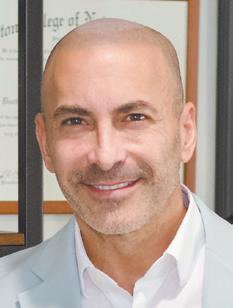
Dr. Michael Wald, widely known as The Blood Detective, provides cutting-edge assessments and treatments for a variety of cardiovascular conditions. With over 30 years of clinical holistic practice, Dr. Wald goes beyond conventional heart disease diagnoses and treatments, incorporating advanced functional medicine therapies to support optimal heart health. See ad, page 13.
VERA DUBOVOY, M.D.
Dubovoy Integrative Health 1404 Starling Dr., Richmond, VA 23229 (Inside the Wellness Village) 757-603-3034
VAIntegrativeHealth.com

Vera Dubovoy, M.D., is dual board-certified in OB-GYN and Lifestyle Medicine. She has over 1,000 hours of training in integrative medicine and functional medicine including health and wellness coaching, nutrition, and herbal medicine. She believes in personalized wellness and nourishing our physical, emotional and spiritual health. She and her husband offer a range of progressive therapies designed to fit the treatment needs of the patient.
PCM INSURANCE AGENCY
Patricia Mayfield PCMInsurance19@gmail.com 1-800-674-6771

PCM Insurance is your premier destination for Medicare enrollment services. With decades of experience in the industry, our dedicated team of experts is committed to helping individuals navigate the complexities of Medicare with ease. See ad, page 15.
ESCAPE MASSAGE
15500 WC Commons Way, Midlothian 804-794-0445
EscapeMassage.com

We offer a variety of massages including Swedish, Therapeutic Swedish, Deep Tissue, Hot Stone, Aromatherapy and CBD. We also offer energy therapy, reiki and halotherapy services. We have a team of professional, experienced, and caring licensed massage therapists and reiki masters ready to cater to your self-care needs.

NARITA C. SNEAD, MPH, MSN, APN-BC Certified Medical Cannabis Provider
Adult Nurse Practitioner
Registered Practitioner for Medical Cannabis
804-475-8904
Green-Healing.co

At GreenHealing, we strive to make the process of obtaining a medical marijuana card and locating certified cannabis physicians as easy as possible for our patients.
MAGNOLIA WELLNESS
Regina Rudolph MagnoliaWell@gmail.com
804-495-0325
Wellness-Teas.com
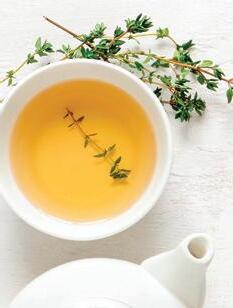
Promoting self-care and disease prevention through the use of our crafted collection of premium wellness teas designed to reduce stress and anxiety, strengthen the immune system, promote weight loss and release harmful toxins. Magnolia Wellness also assists people on their journey to better health and wellness through classes and private sessions. See ads, pages 2, 7 & 21.
DR. MICAH ALLEN, ND, LAC, FABORM Essential Natural Health 804-464-3315
DrMicahAllen.com
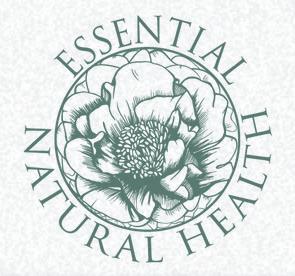
Dedicated to providing personalized holistic healthcare solutions in Richmond, Virginia. Our practice focuses on integrating time-tested acupuncture techniques with innovative medical solutions to achieve significant and enduring results for our patients. Specializing in challenging chronic conditions such as peripheral neuropathy, infertility and pain, we strive to help individuals live fulfilling lives. At Essential Natural Health, we prioritize understanding each patient as a whole person. We develop customized preventive and natural medicine health plans for all ages, from pediatrics to geriatrics. Our approach is grounded in harnessing the body ’ s inherent healing abilities through tailored treatment plans designed to address individual needs effectively.
RX3 COMPOUNDING PHARMACY
12230 Ironbridge Rd, Ste C, Chester 11934 W Broad St, Henrico Ph: 804-717-5000, Fax: 804-717-8300
Rx3Pharmacy.com

RX3, Virginia’s First Nationally Accredited Compounding Pharmacy, has been an industry leader for 23+ years. Specialists in customized compounding, bioidentical hormones, veterinary/equine compounding, traditional pharmacy, palliative care, professional quality supplements, CBD experts, Food Inflammation Testing, and more. See ad, page 17.
DEBBIE TROXELL, RN, MSNH Thermographer
The Wellness Village 1404 Starling Dr, Richmond 804-683-7774
RVAThermography.com

Safe, non-invasive, radiationfree imaging. Preserve your breasts, heart health and much more. Live happier and healthier longer! Interpreted by Matthew Lee, MD, RPh. See ad, page 26.
GLENMORE YOGA & WELLNESS CENTER
Far West End Location 10442 Ridgefield Pkwy, Henrico 804-741-5267
Info@GlenmoreYoga.com GlenmoreYoga.com
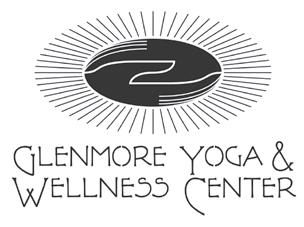
Incorporate yoga into your life at Glenmore with in-person and online student-focused, multilevel classes from Ageless Gentle, Beginner and Yin to Vinyasa Flow, Restorative and Meditation. 200- and 300Hour Teacher Training. Voted best Richmond Yoga Center.
n 50+ Top Experts Share Their Wisdom
n Multimedia Resources
n Interactive Community
n Meaningful Connections
n Artistic Performances
n Movement & DIY Activities
n Gamification
n Sponsor Product Discounts
FREE - Enjoy 5 days of daily admission to inspiring and empowering education from more than 30 top experts, plus TWO FREE GIFTS.
SILVER - Also includes bonus speakers, presentations and immersive experiences, swag bags, lifetime education access, 12 months of interactive community access, live Q&A chat with speakers and MORE!
VIP - Includes SILVER content plus lifetime access to immersive event experiences and to interactive community, a VIP Lounge to meet and interact with speakers, and SO MUCH MORE!






